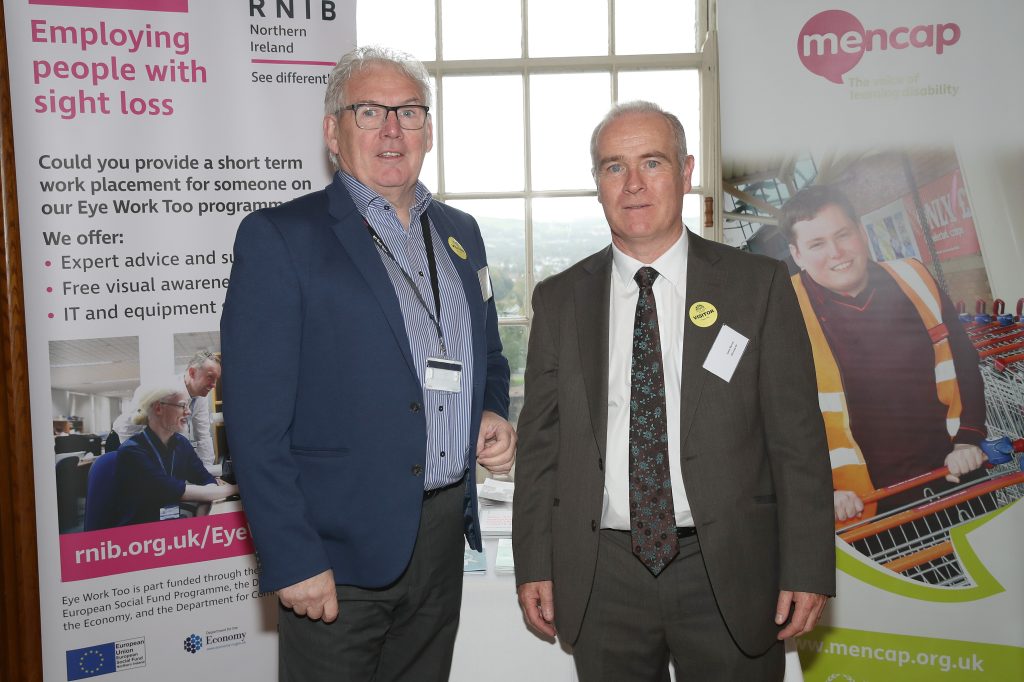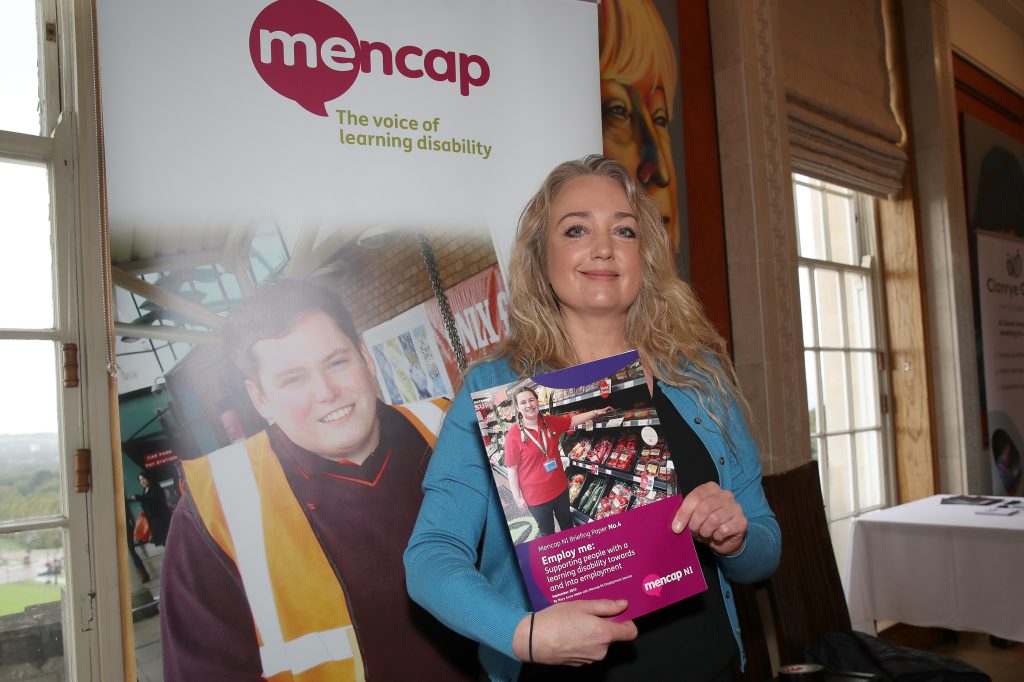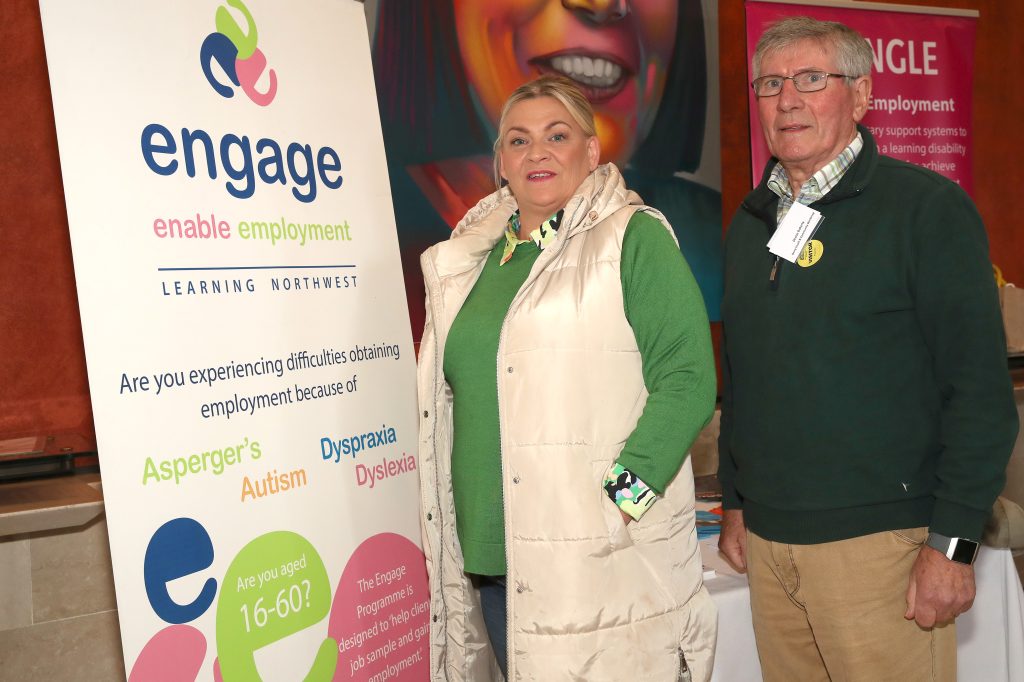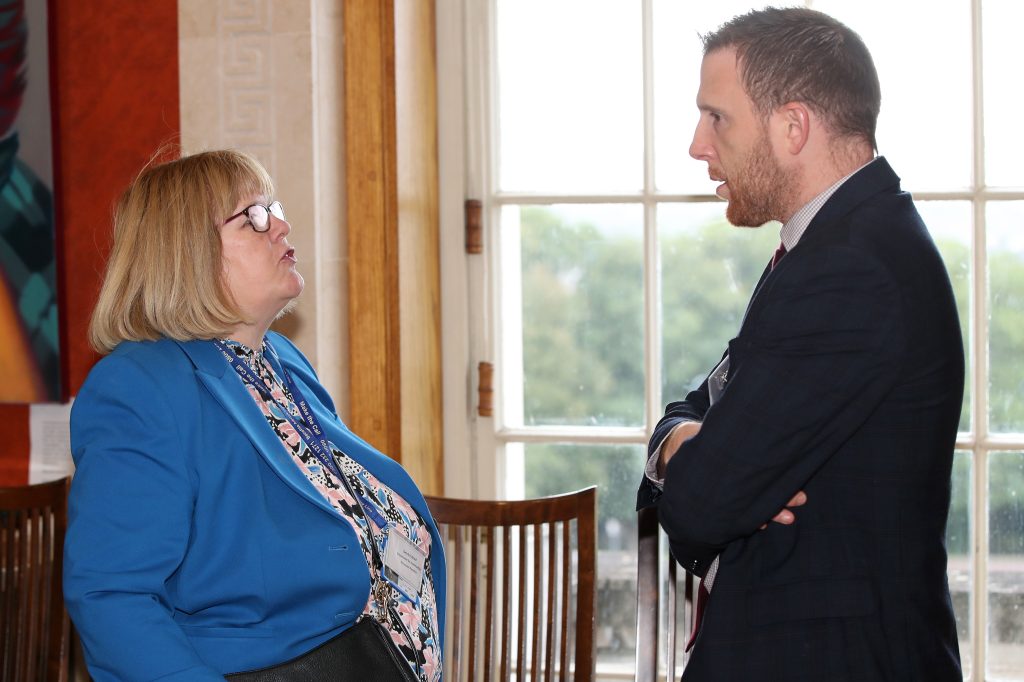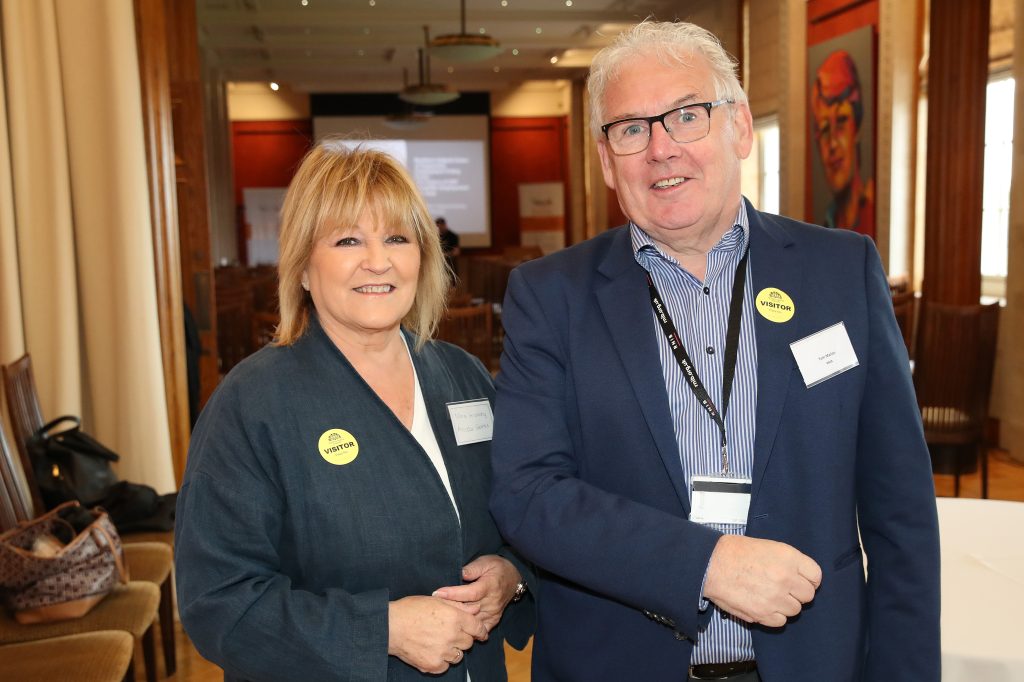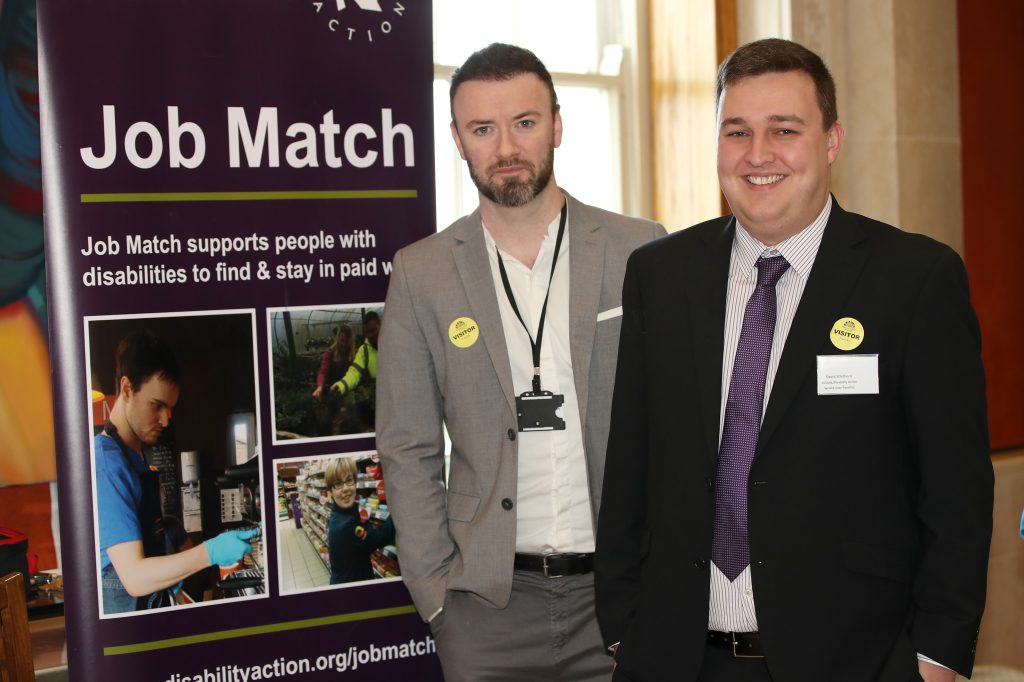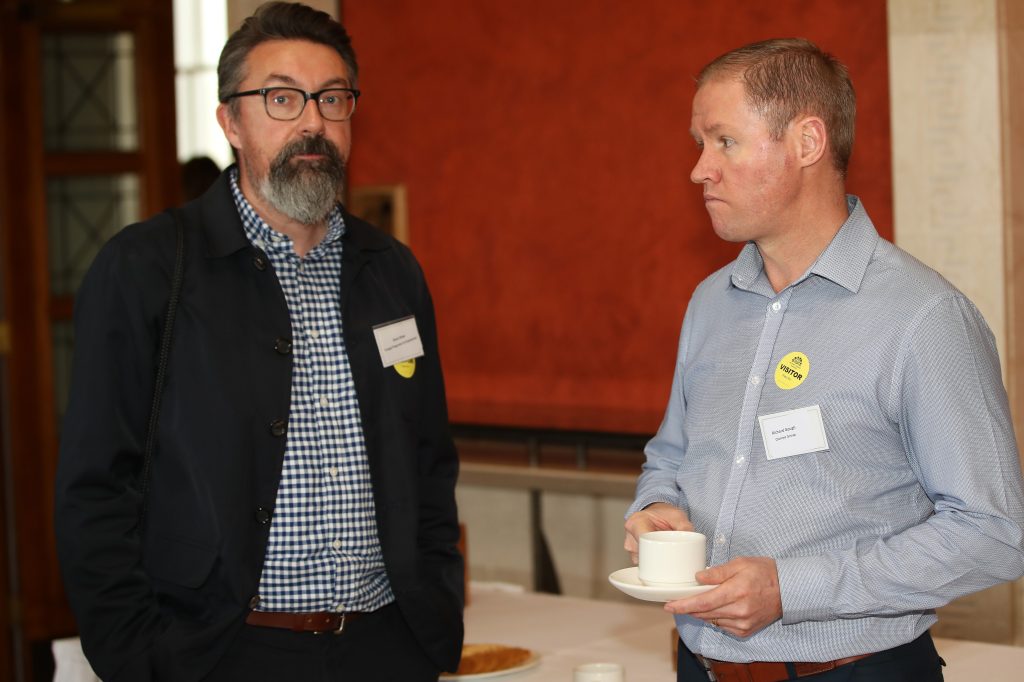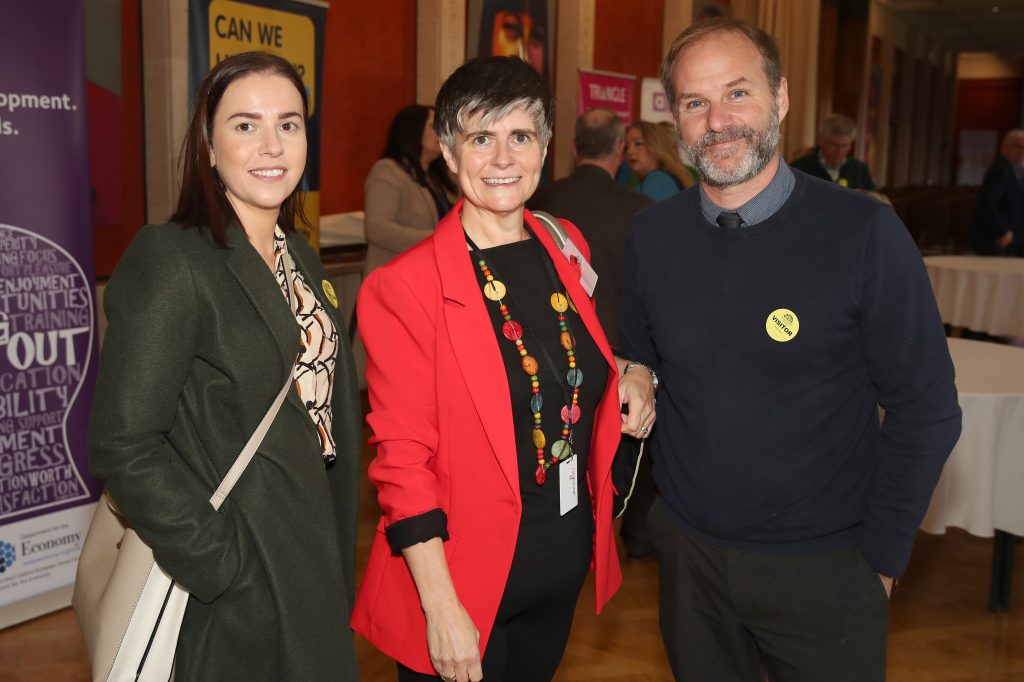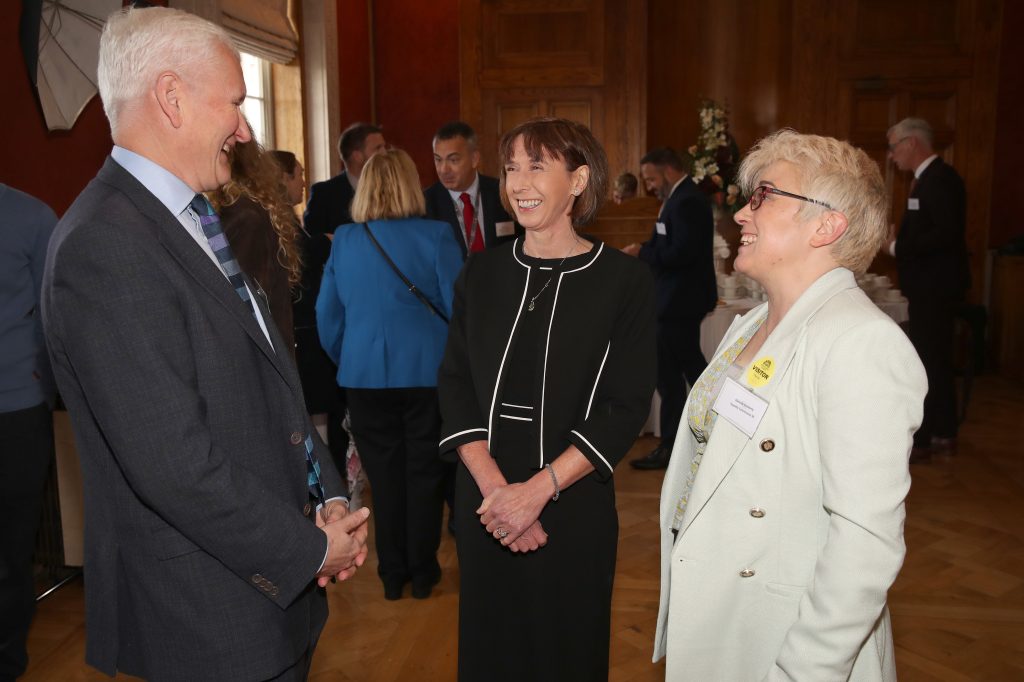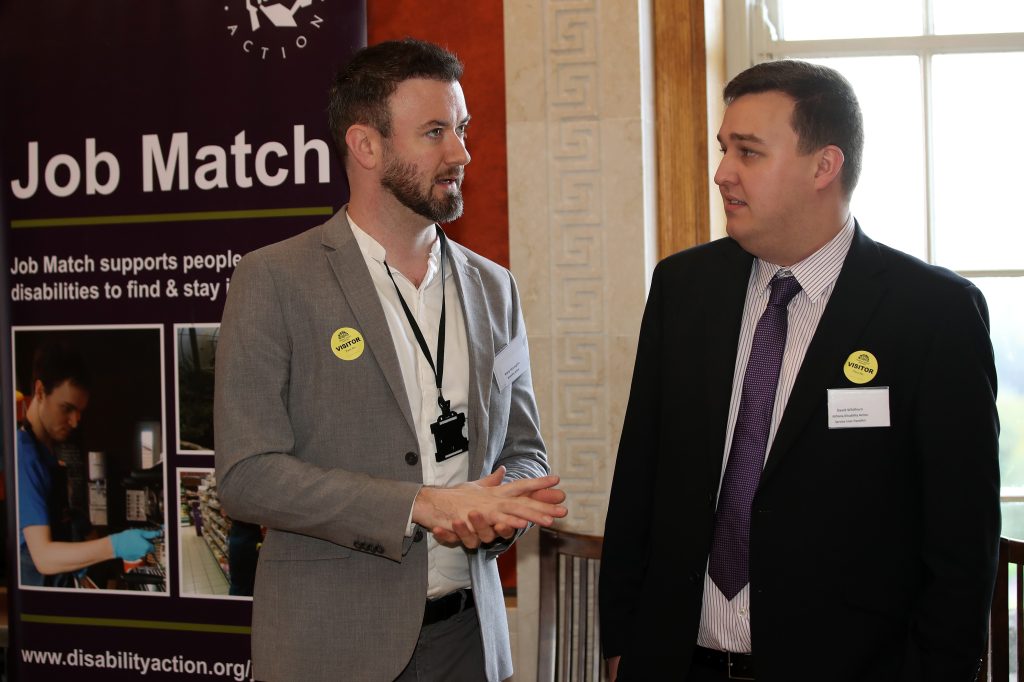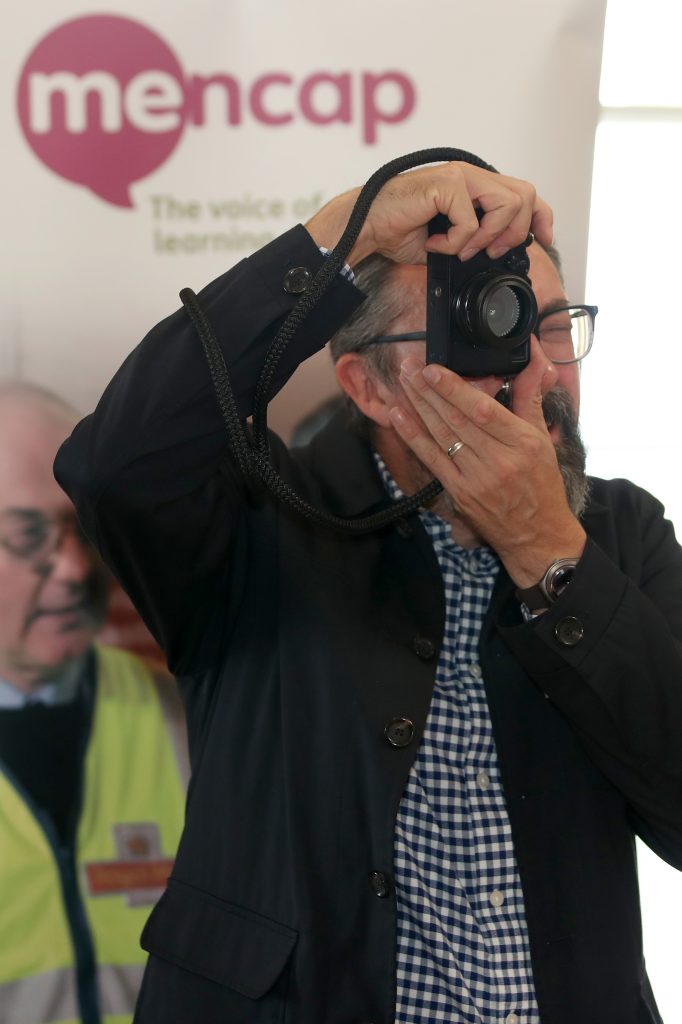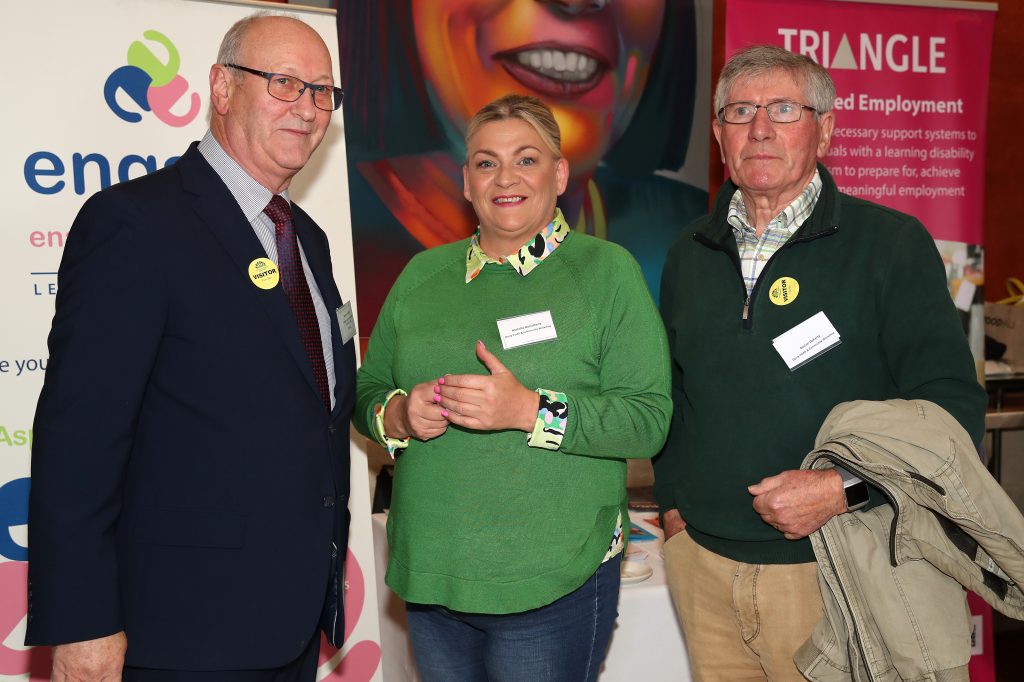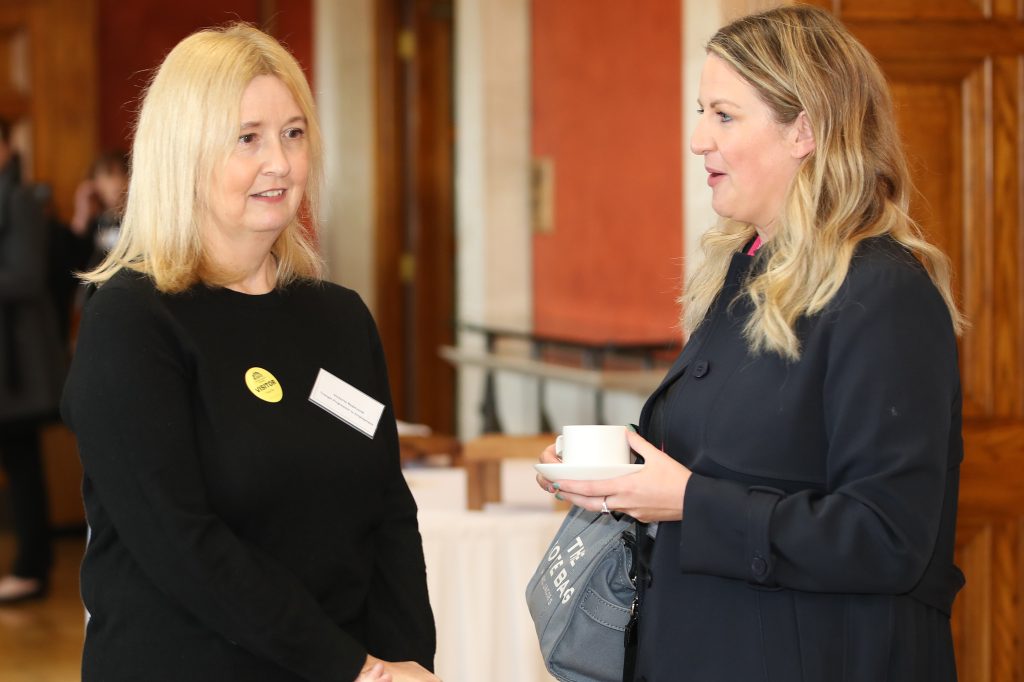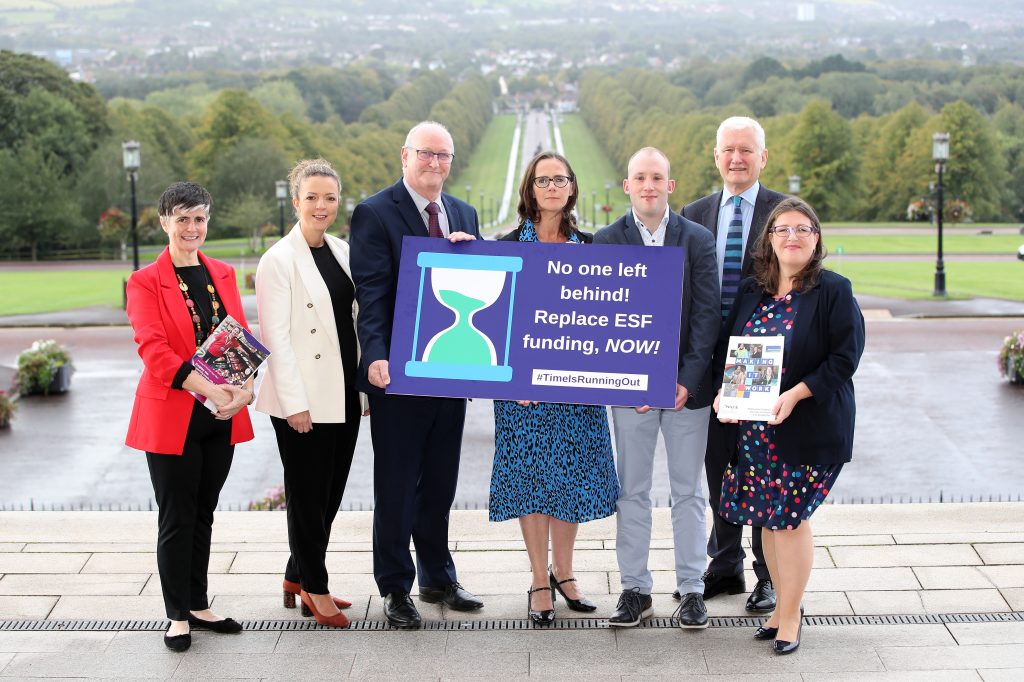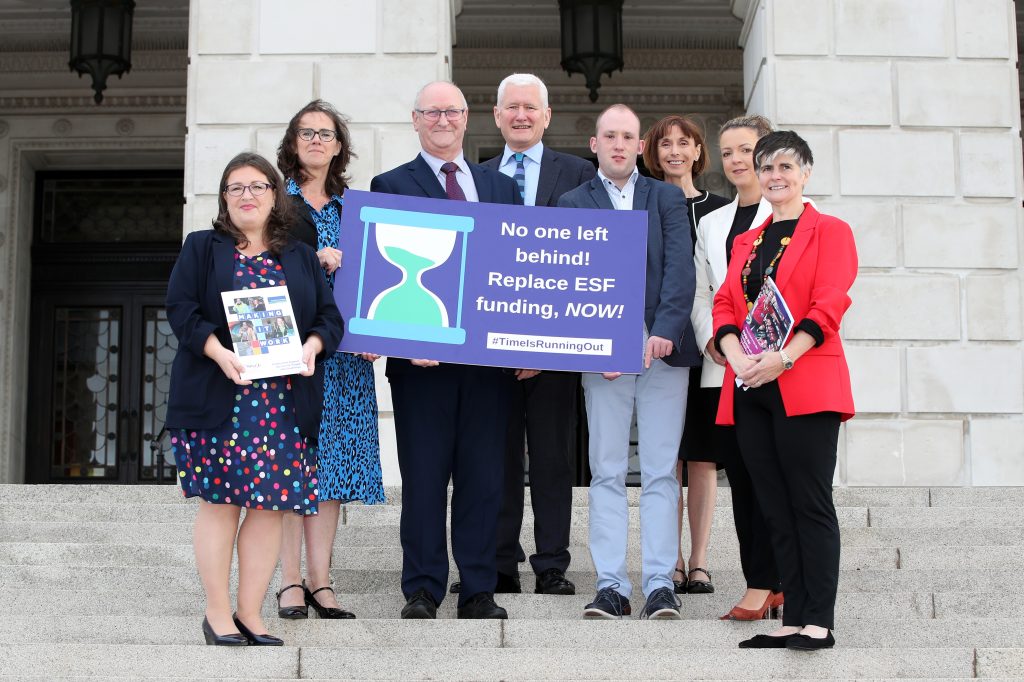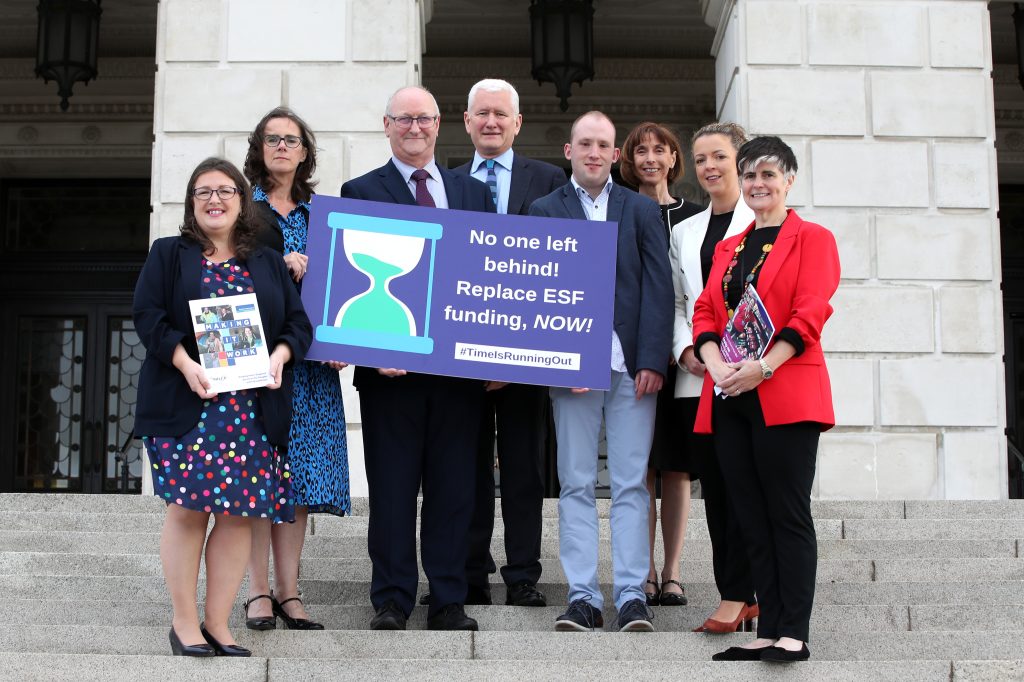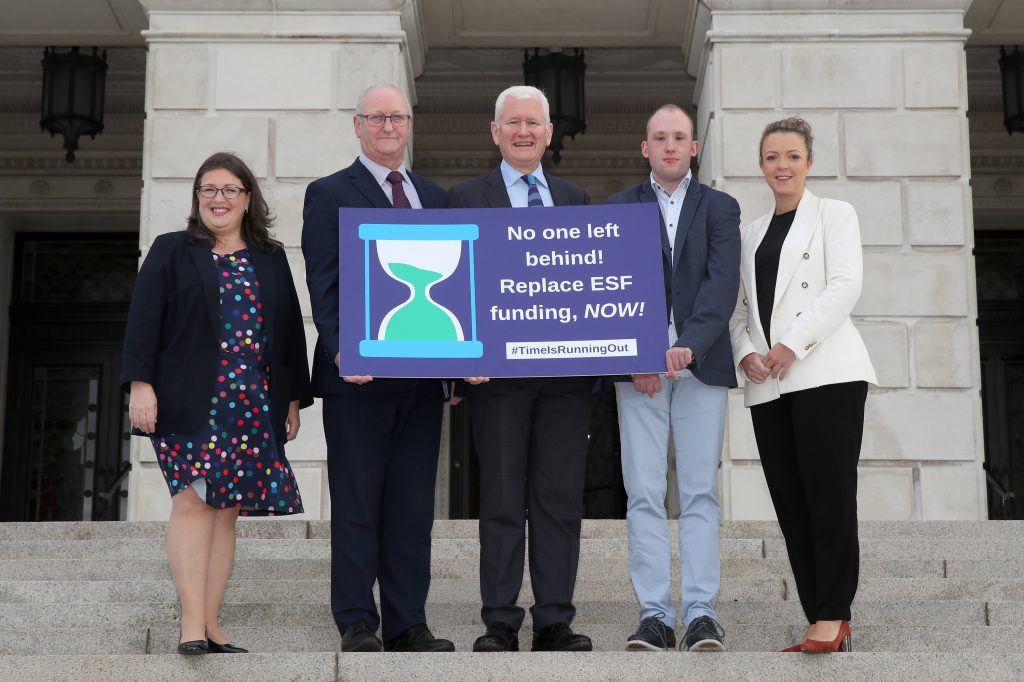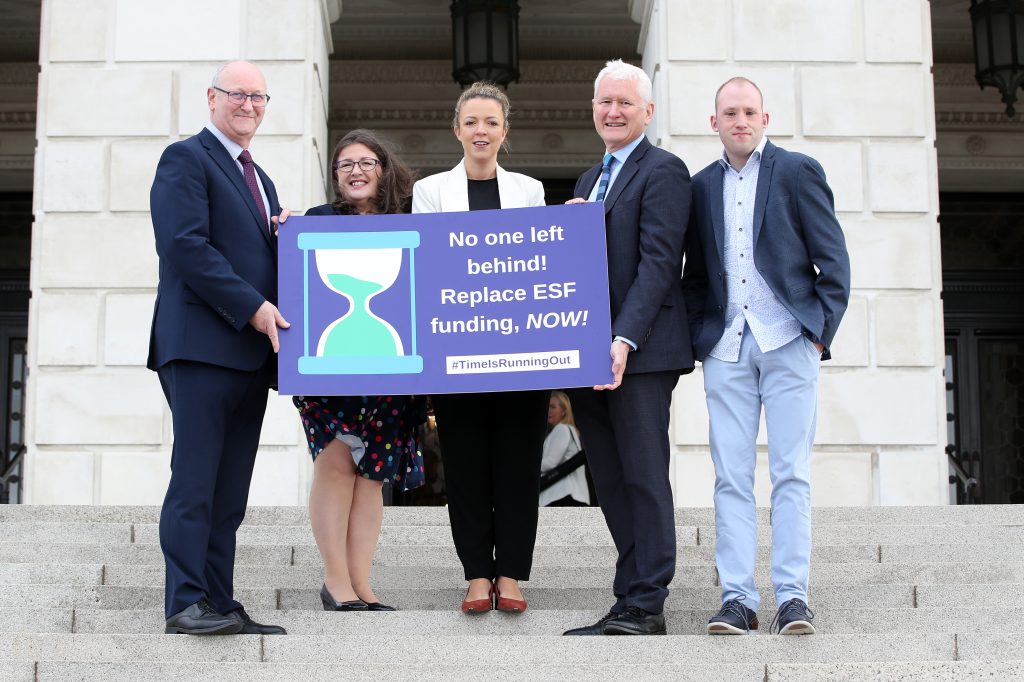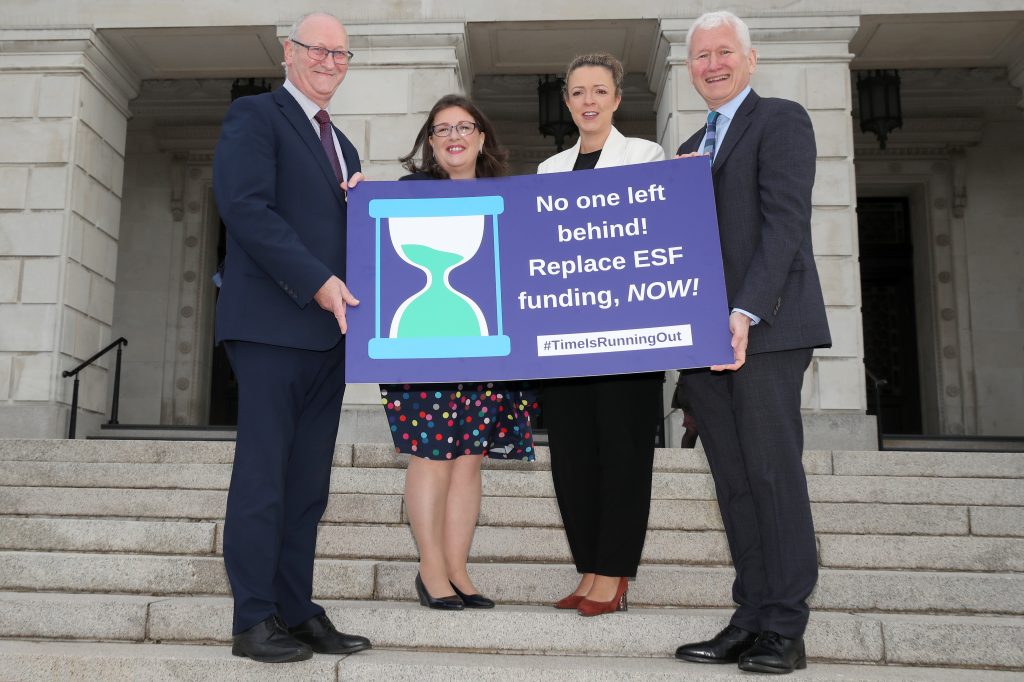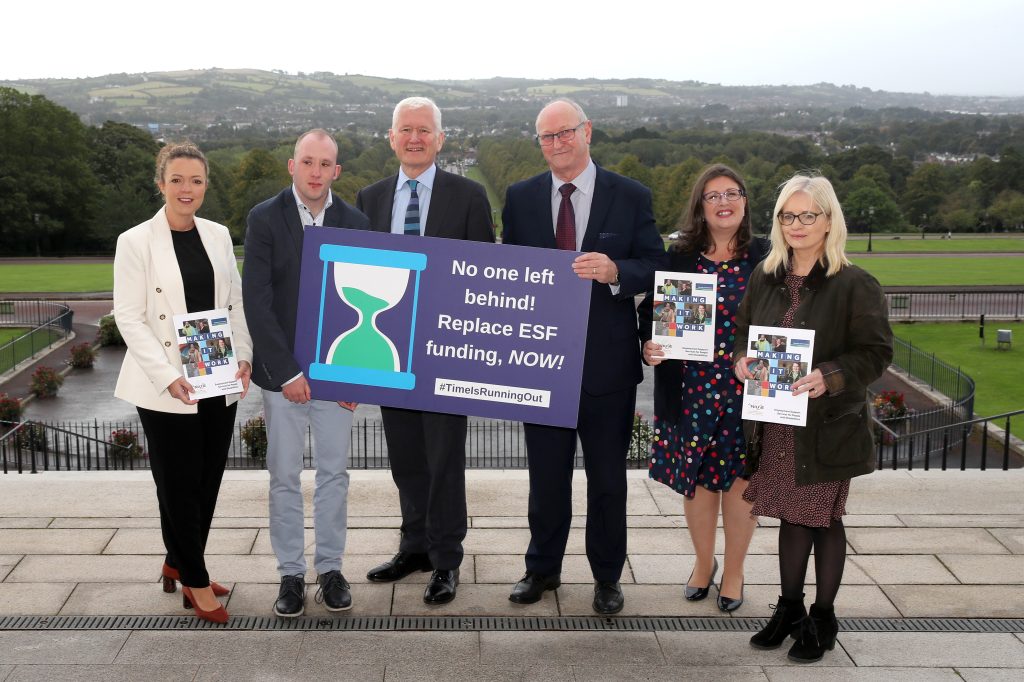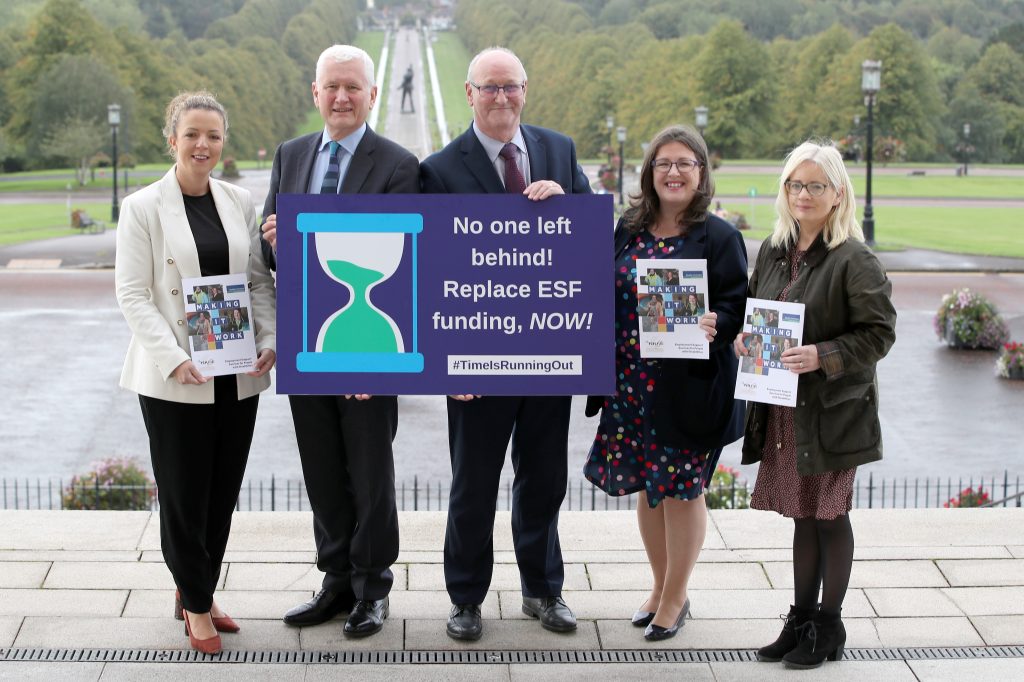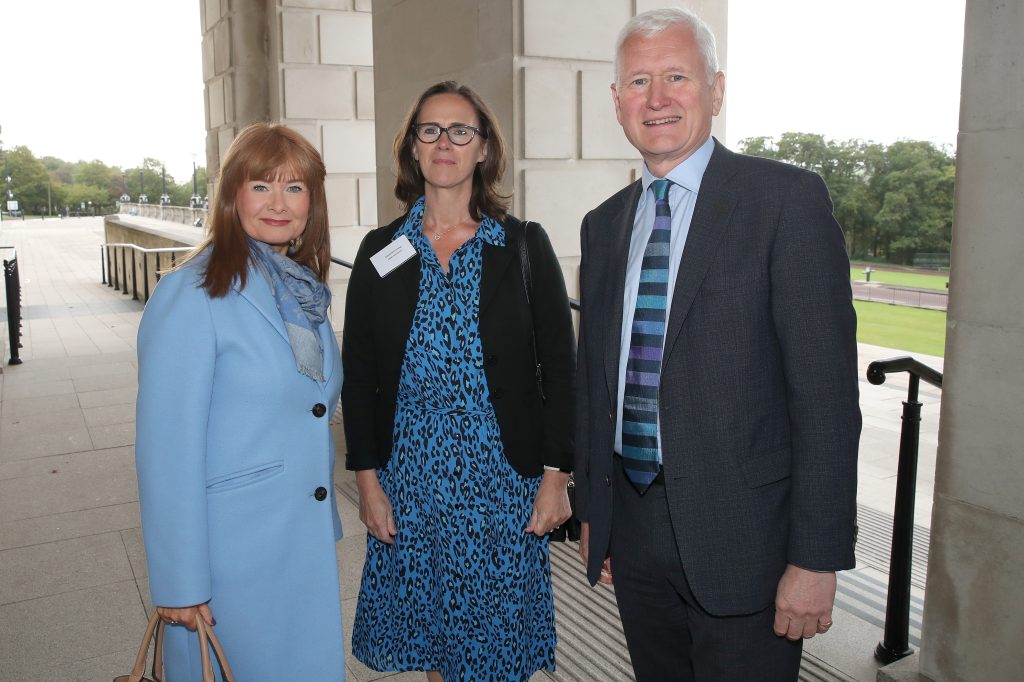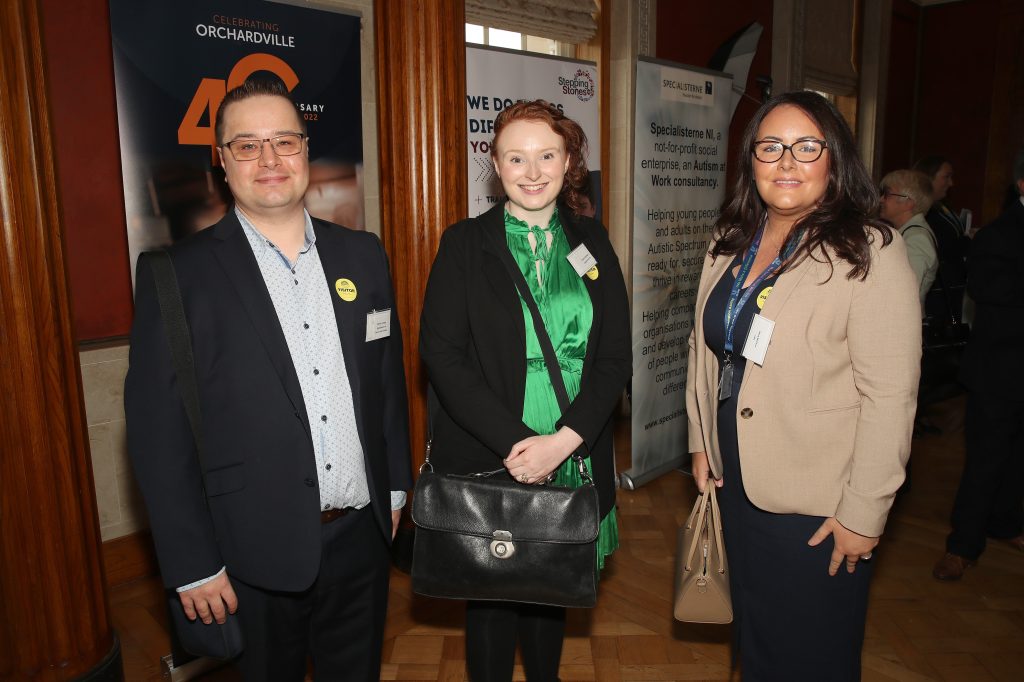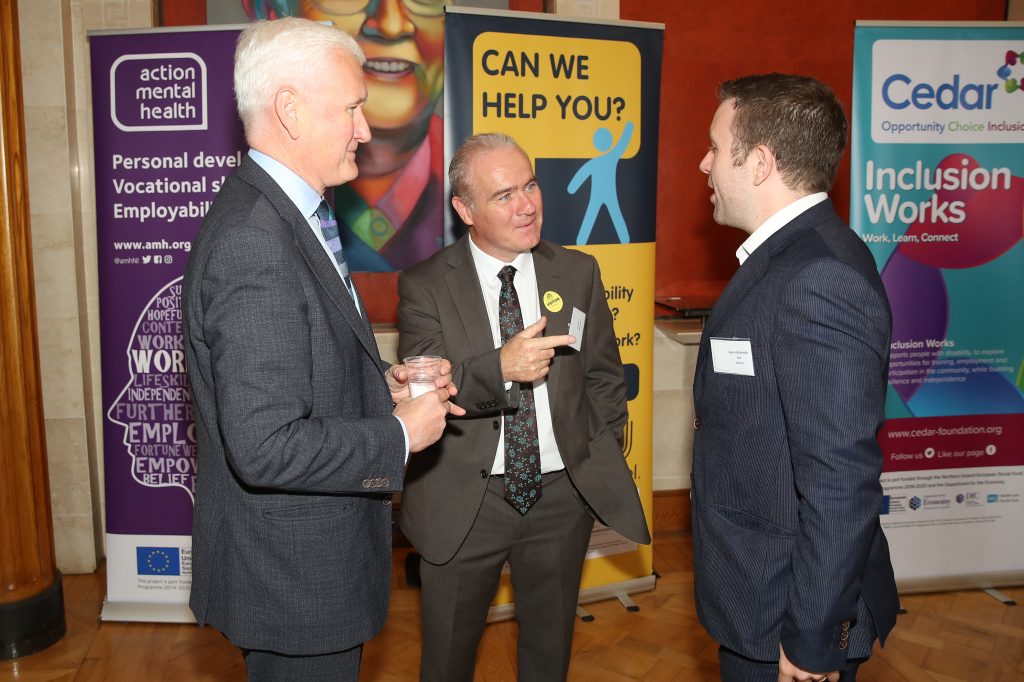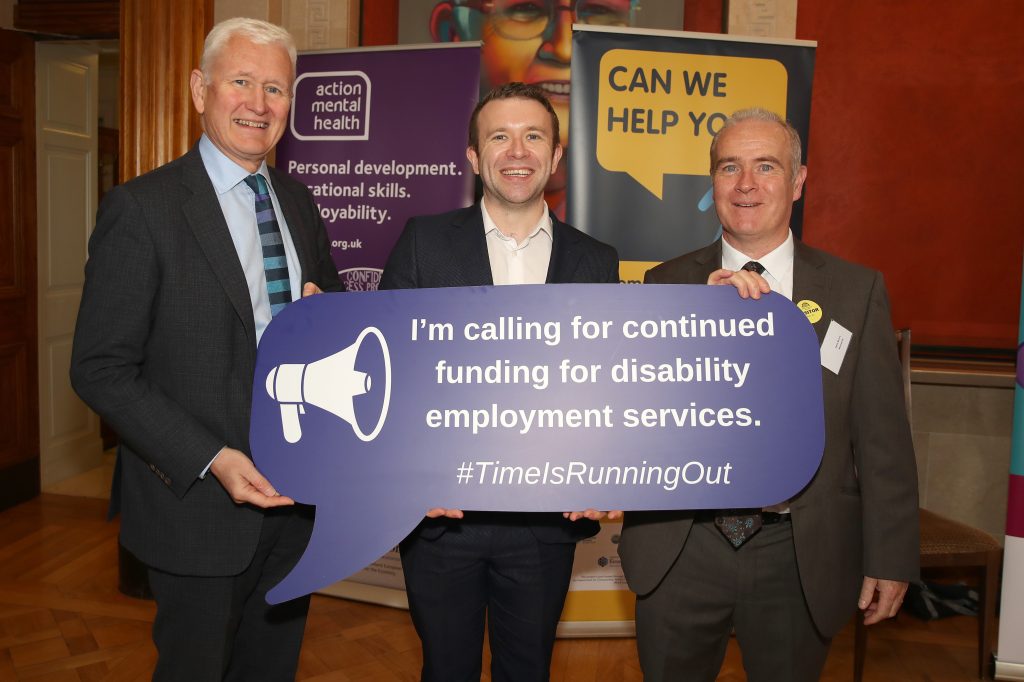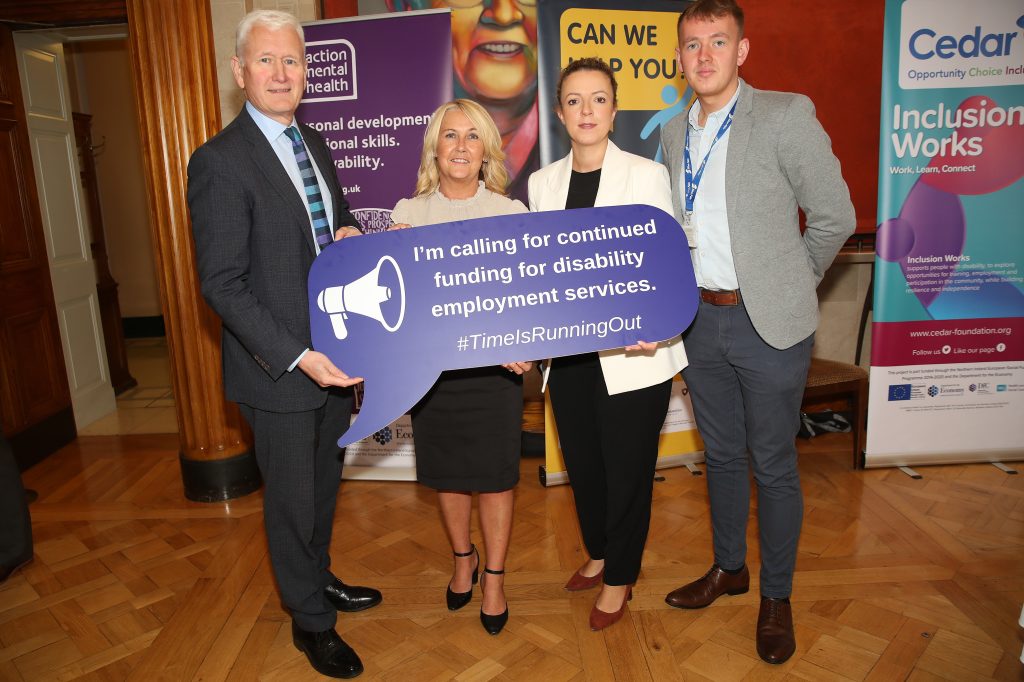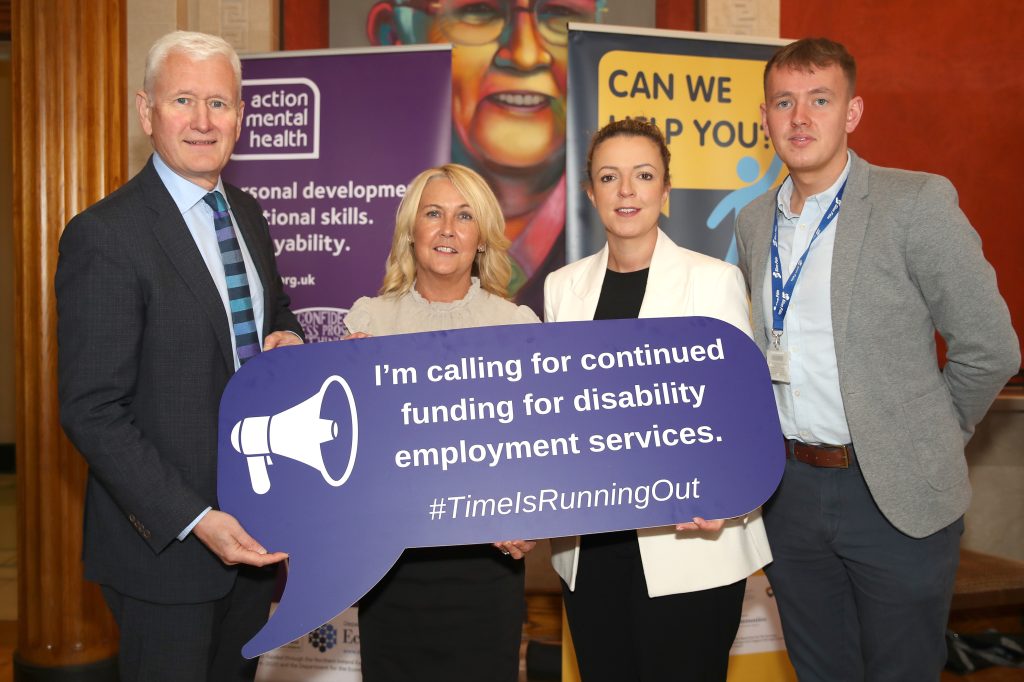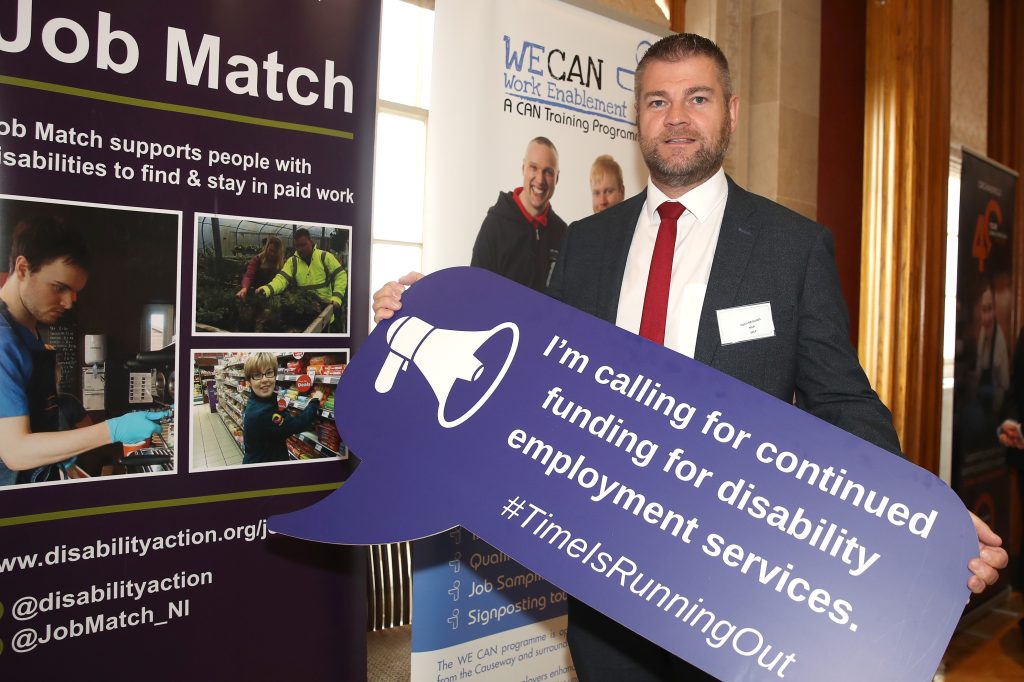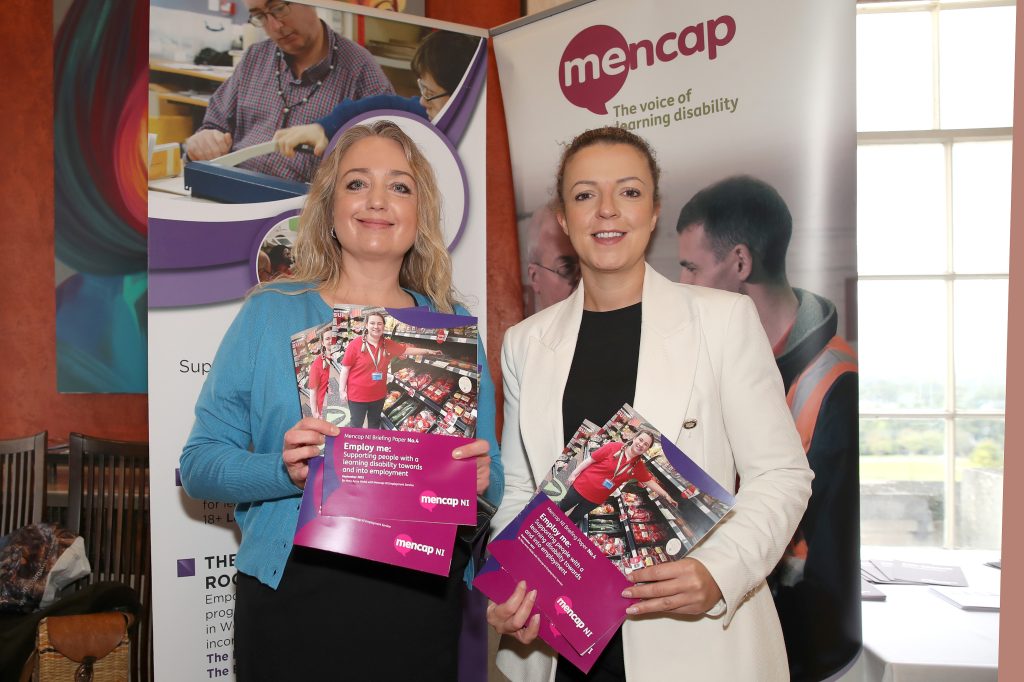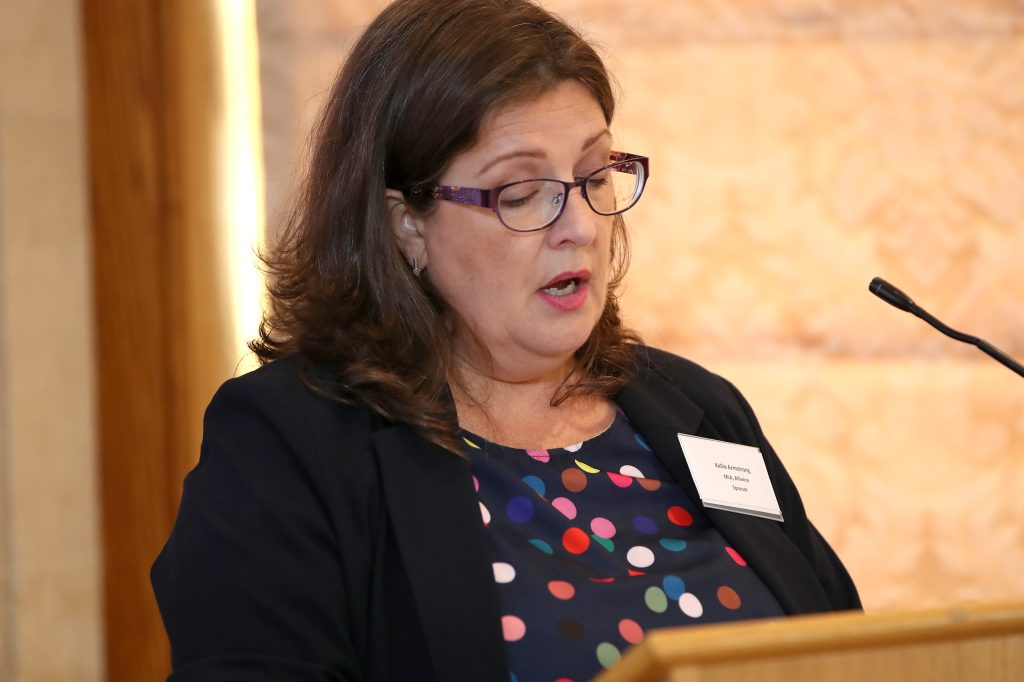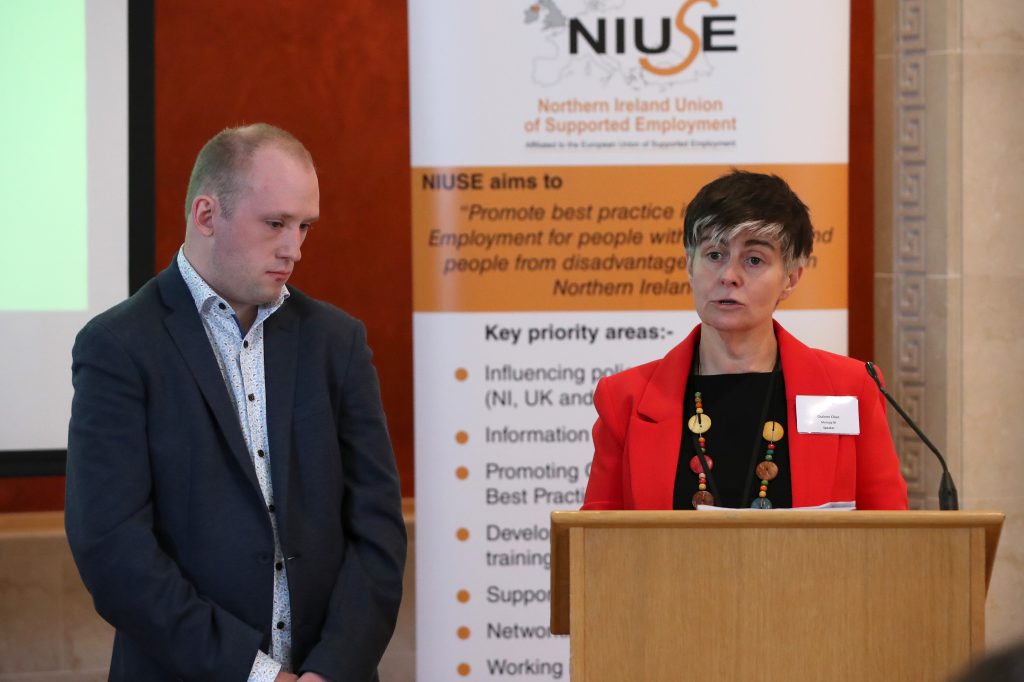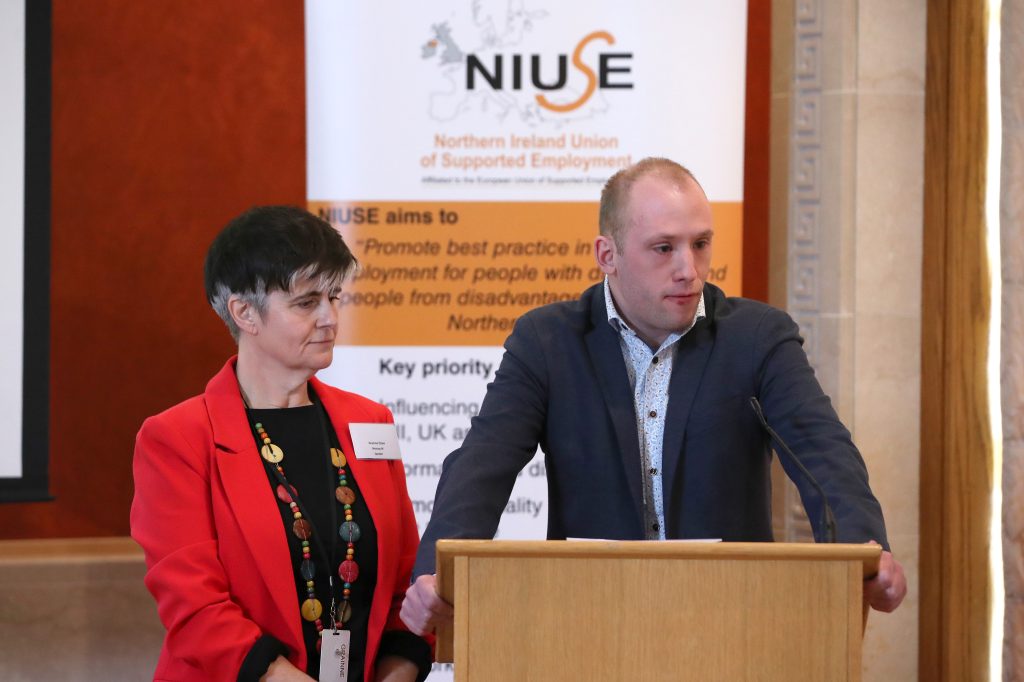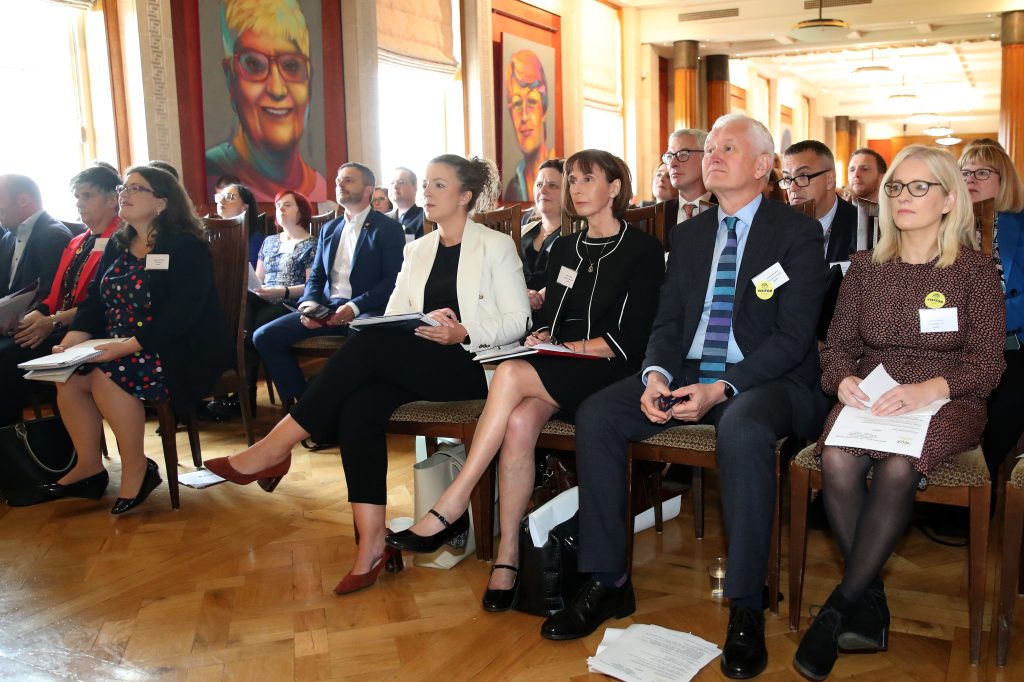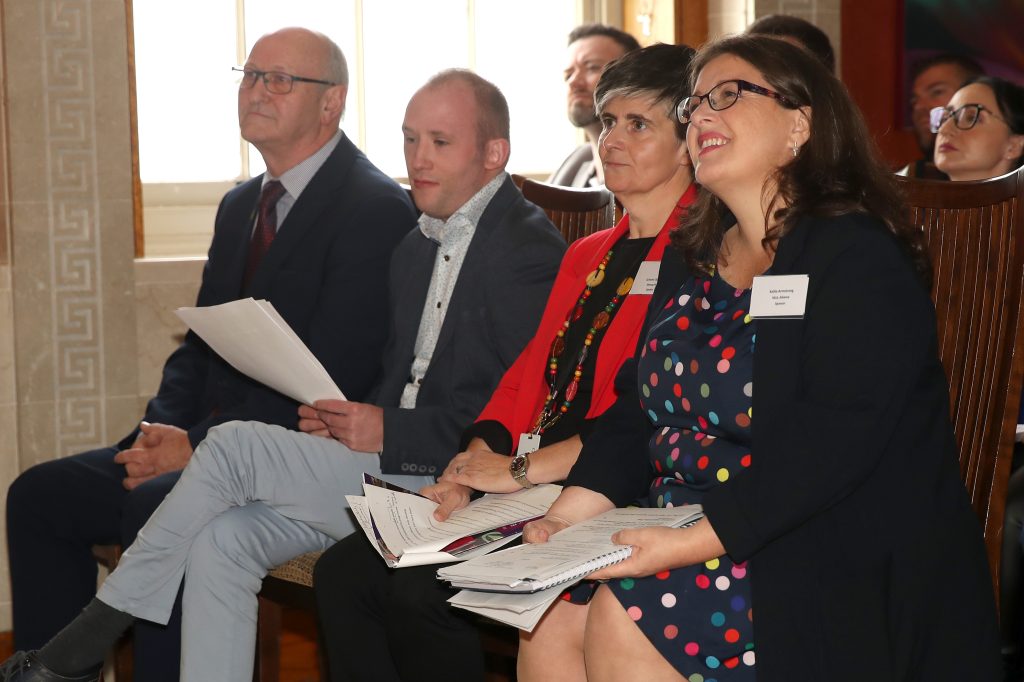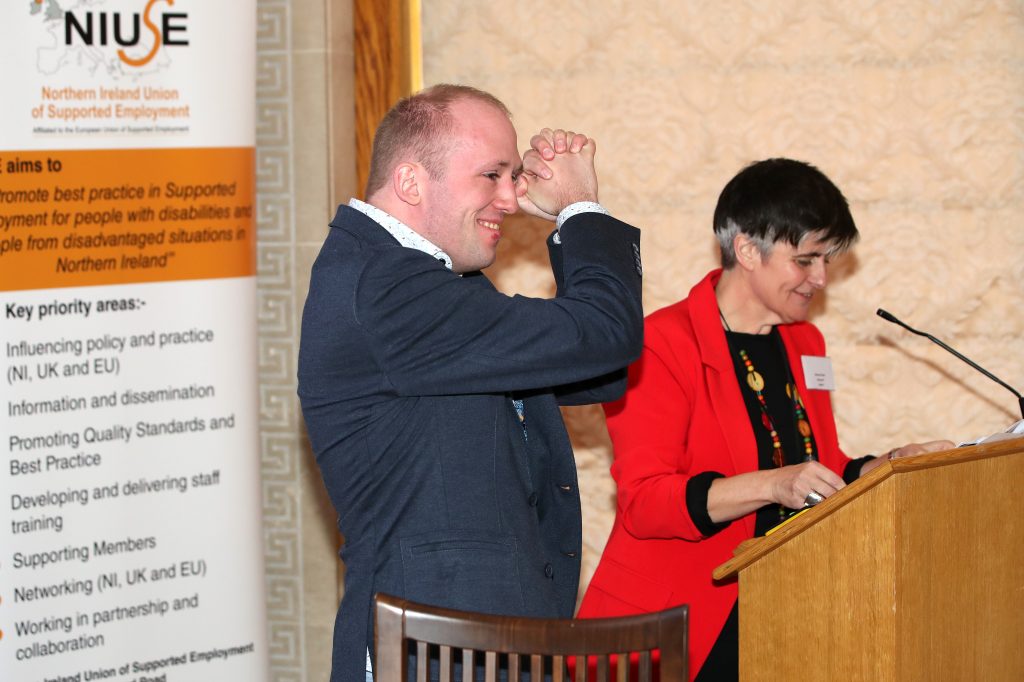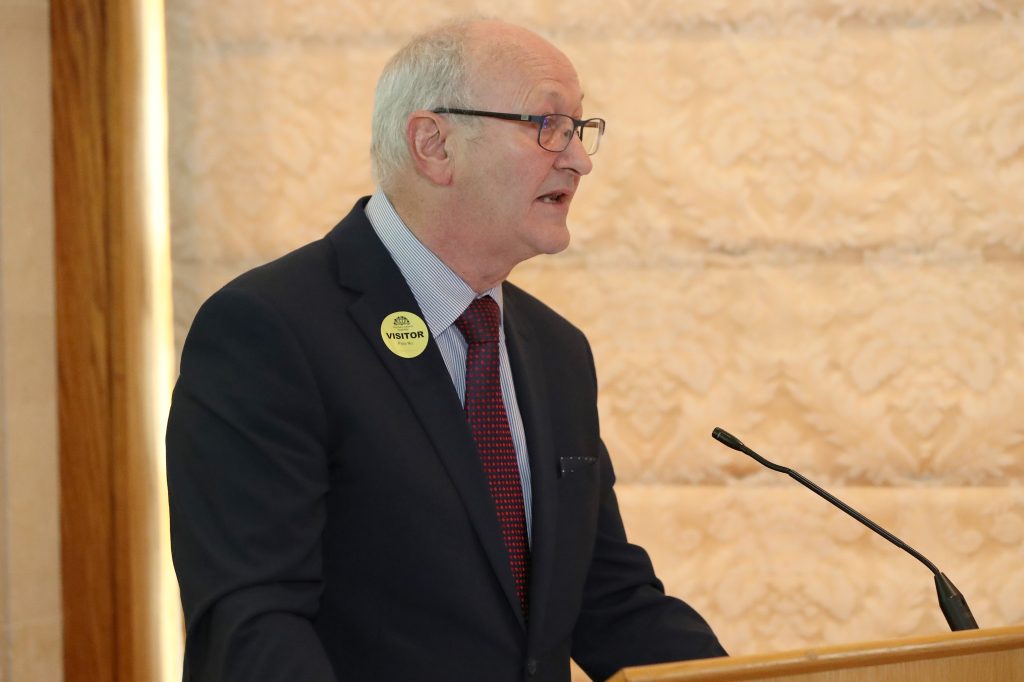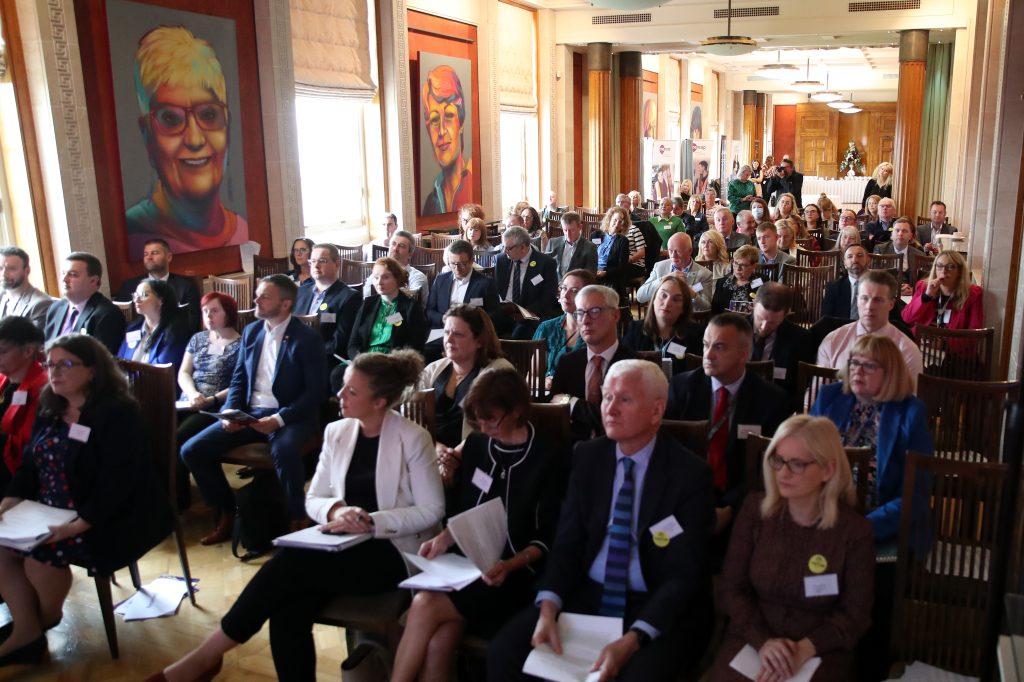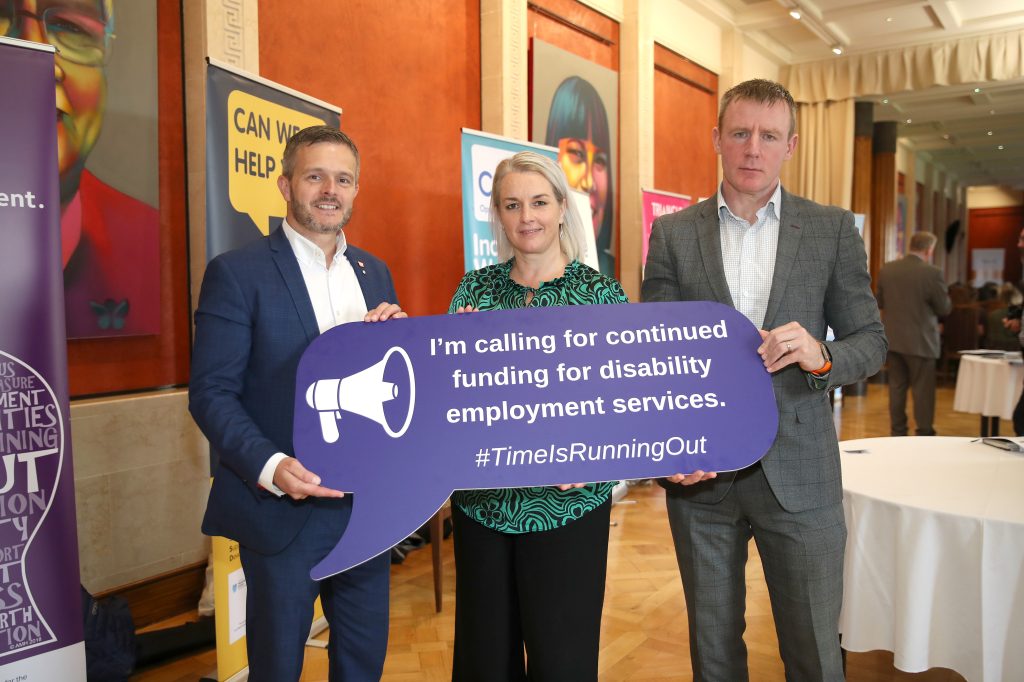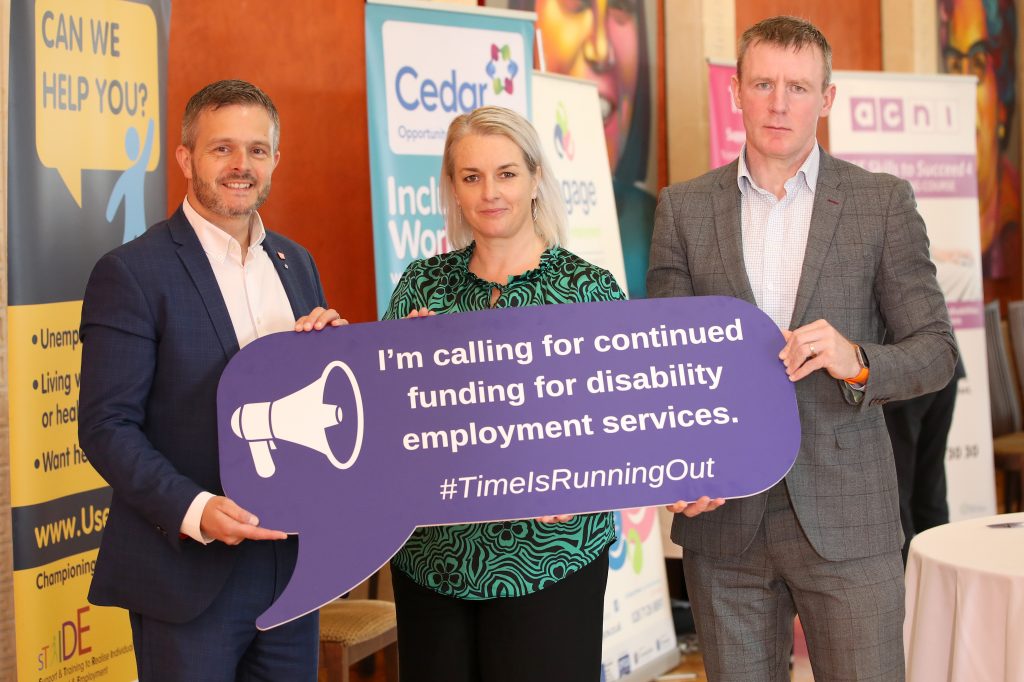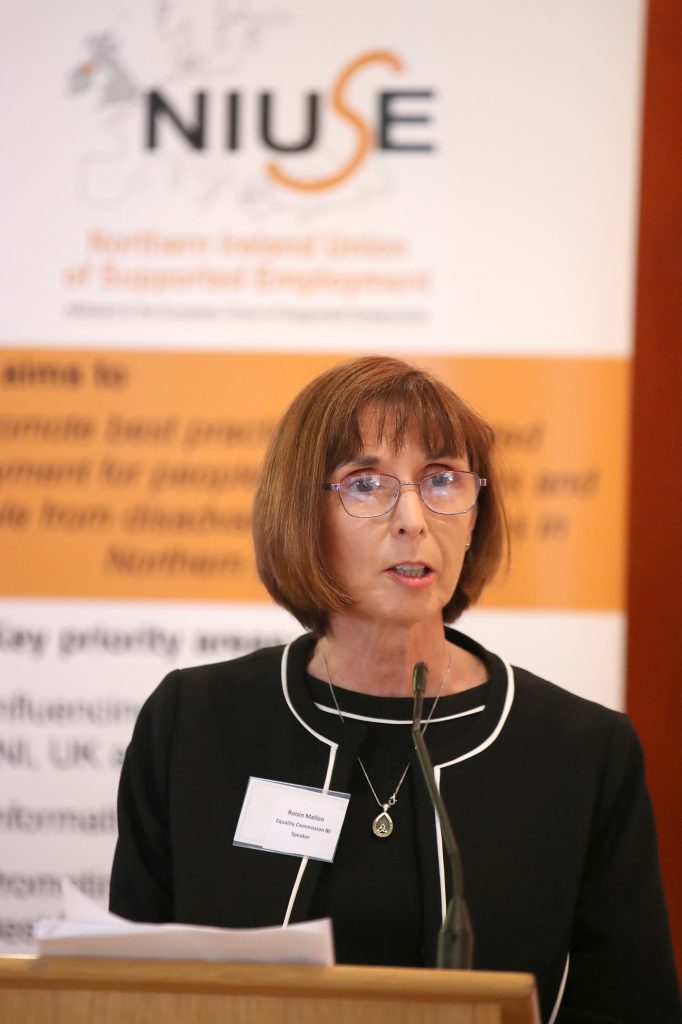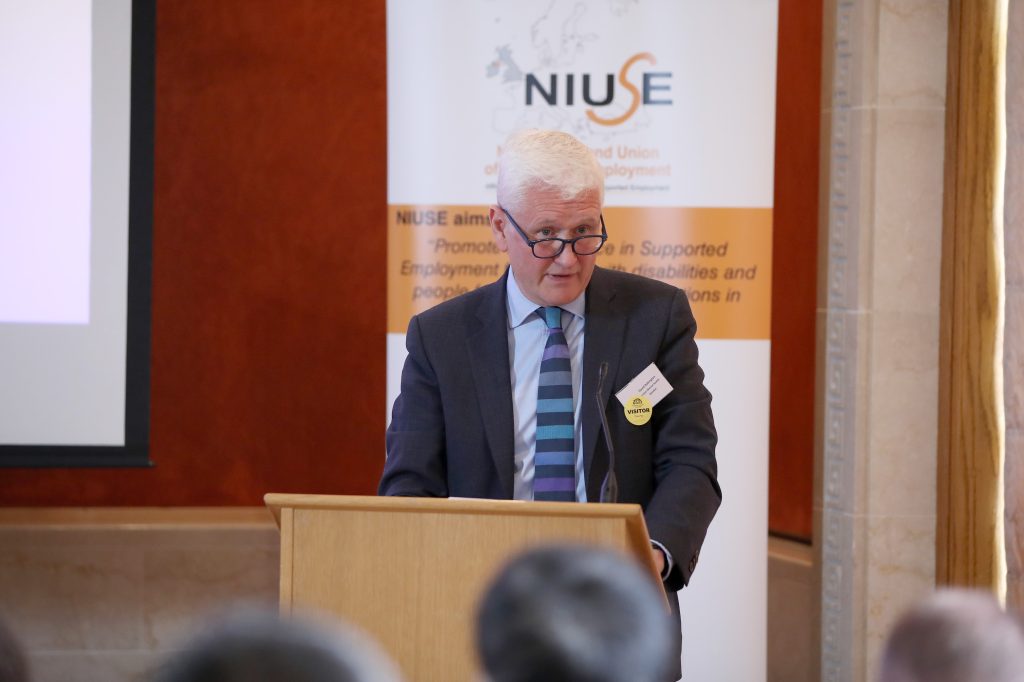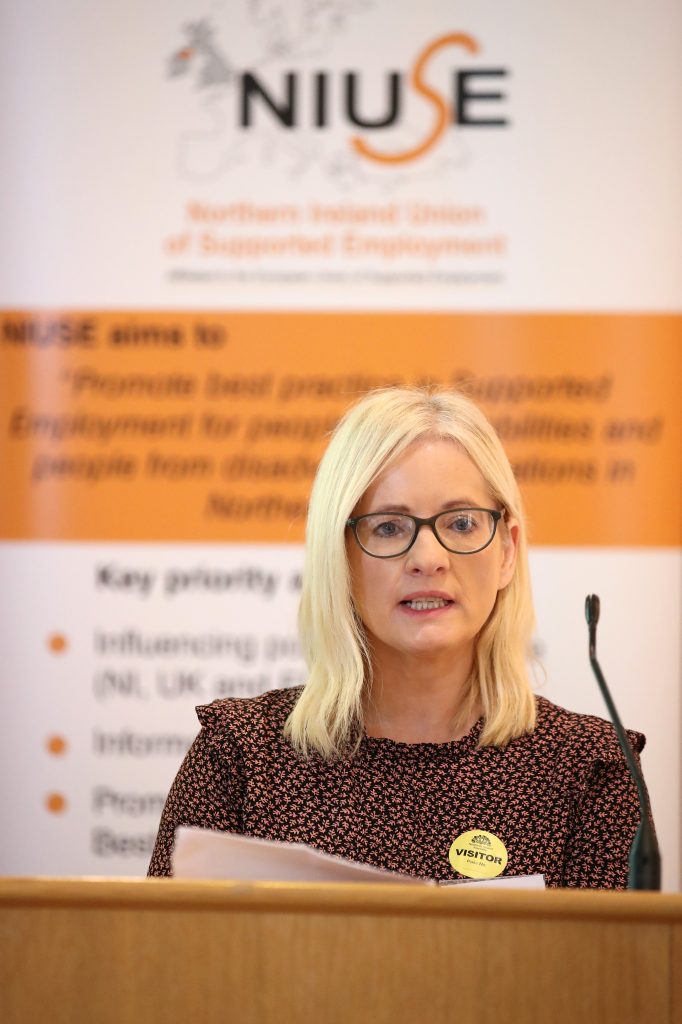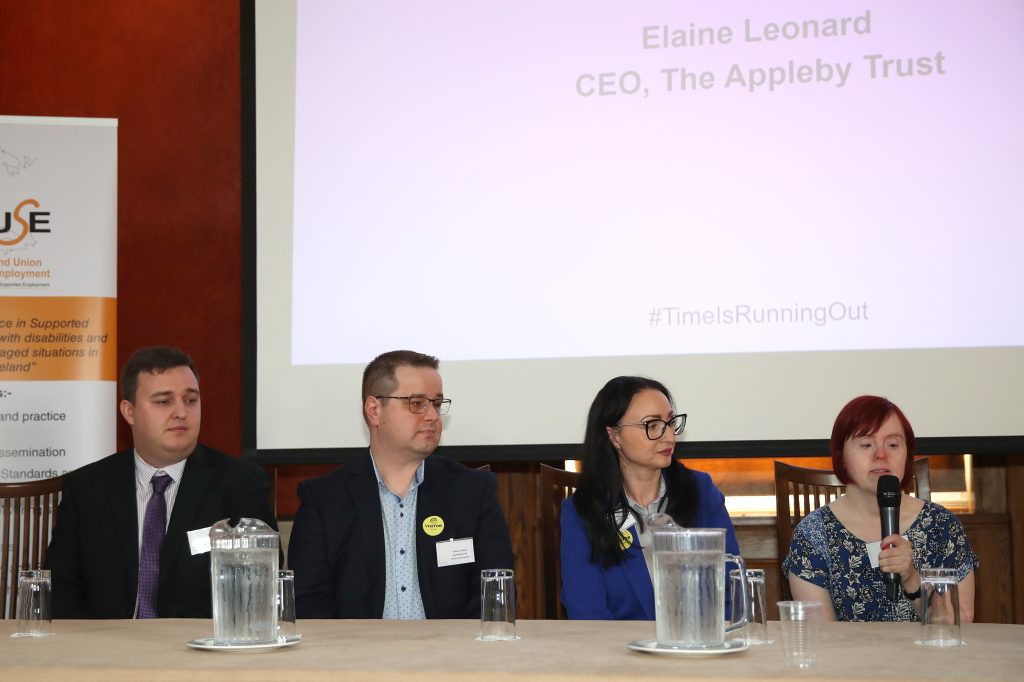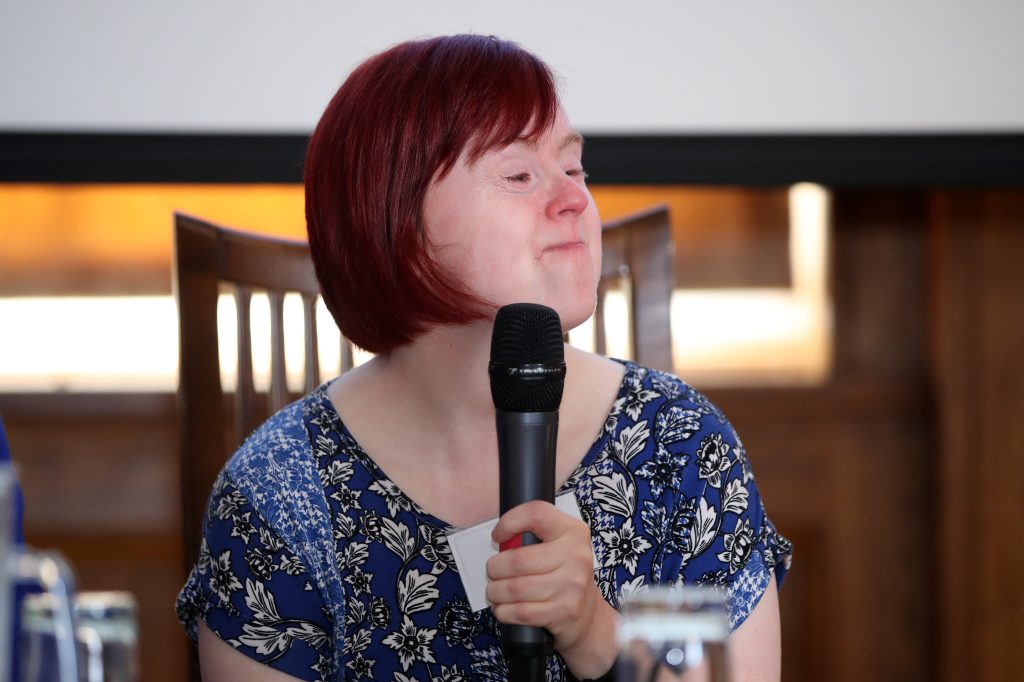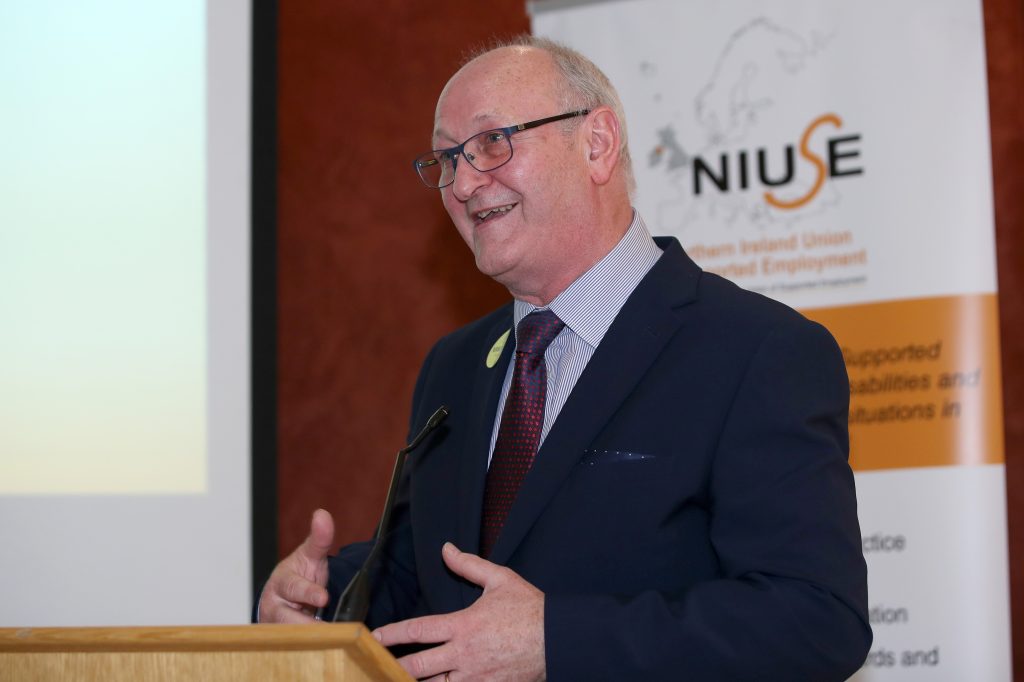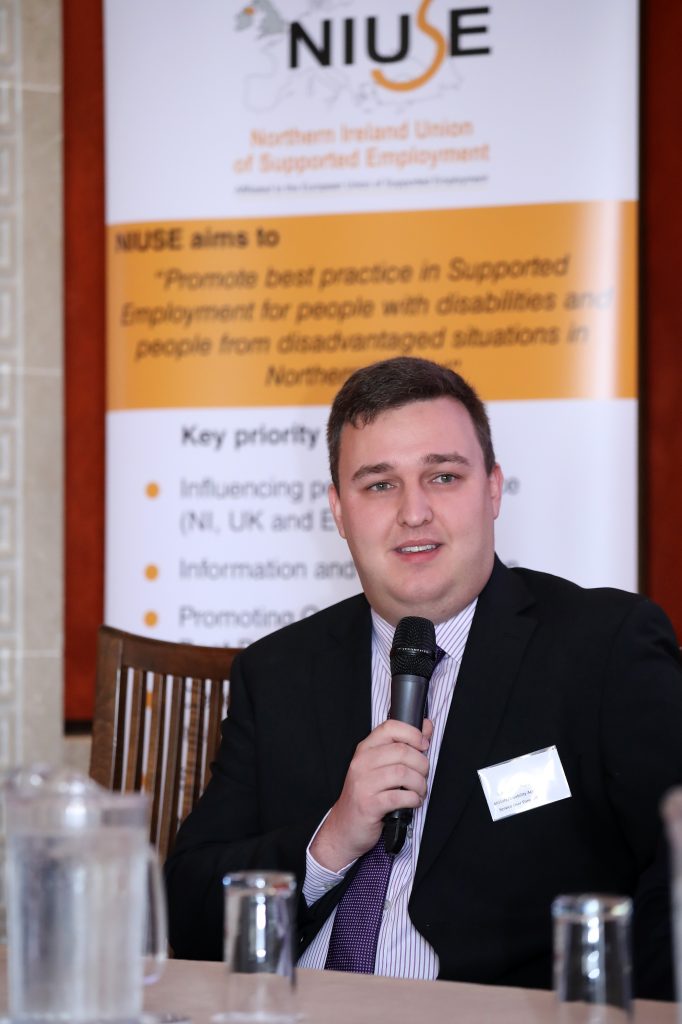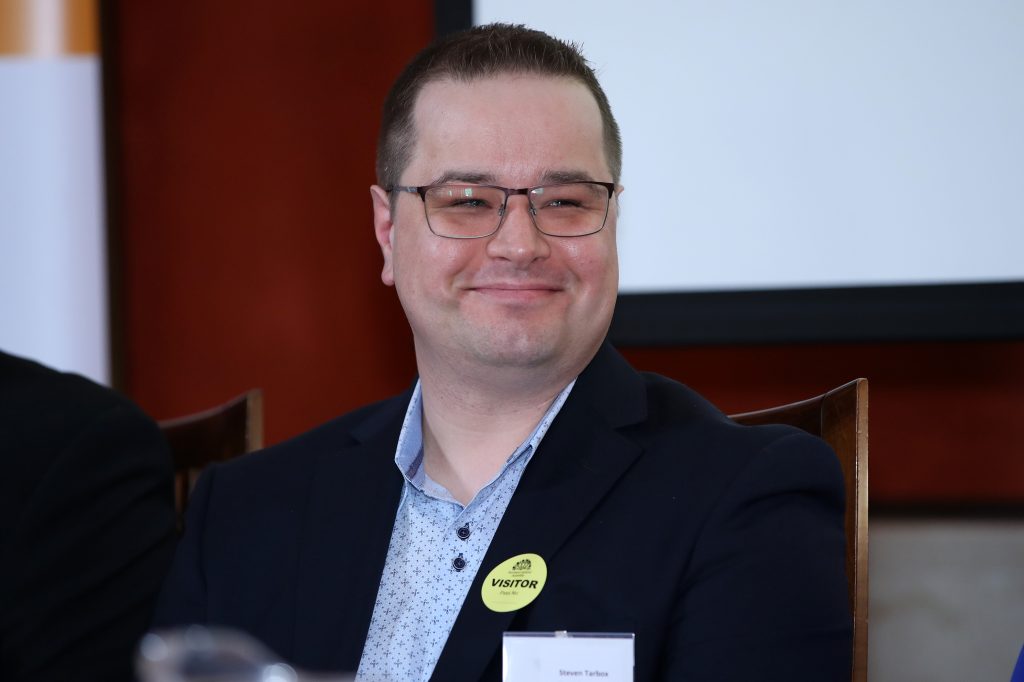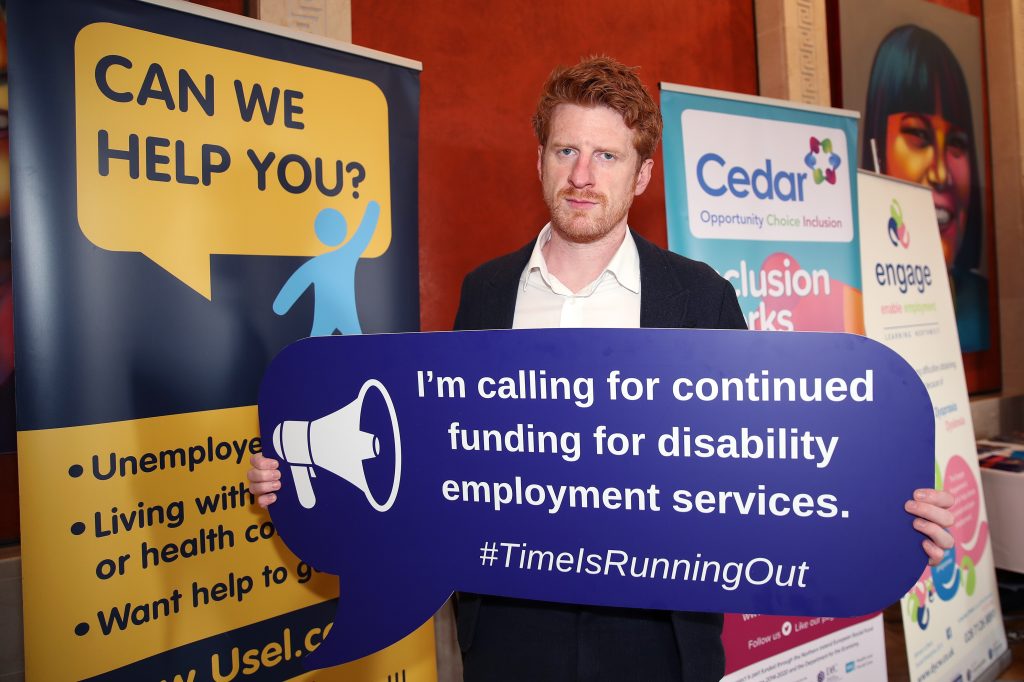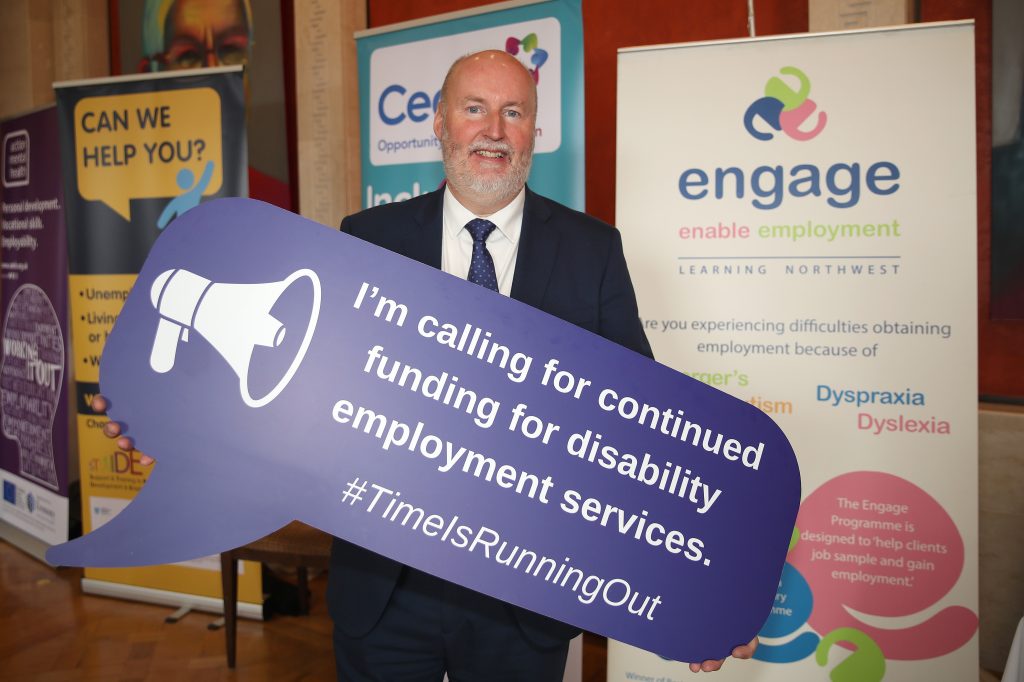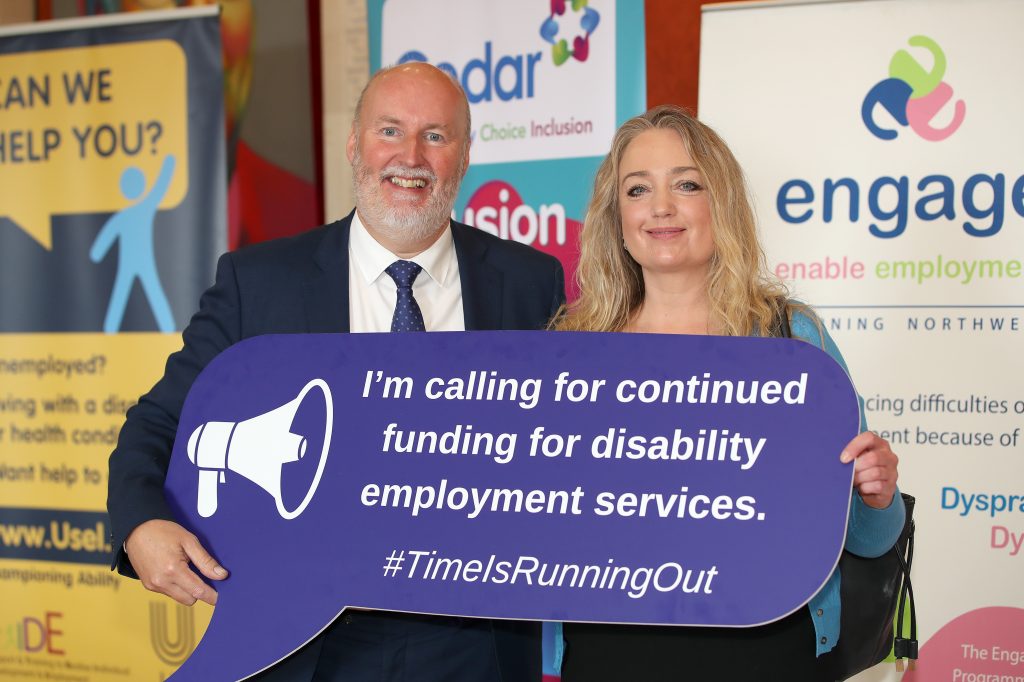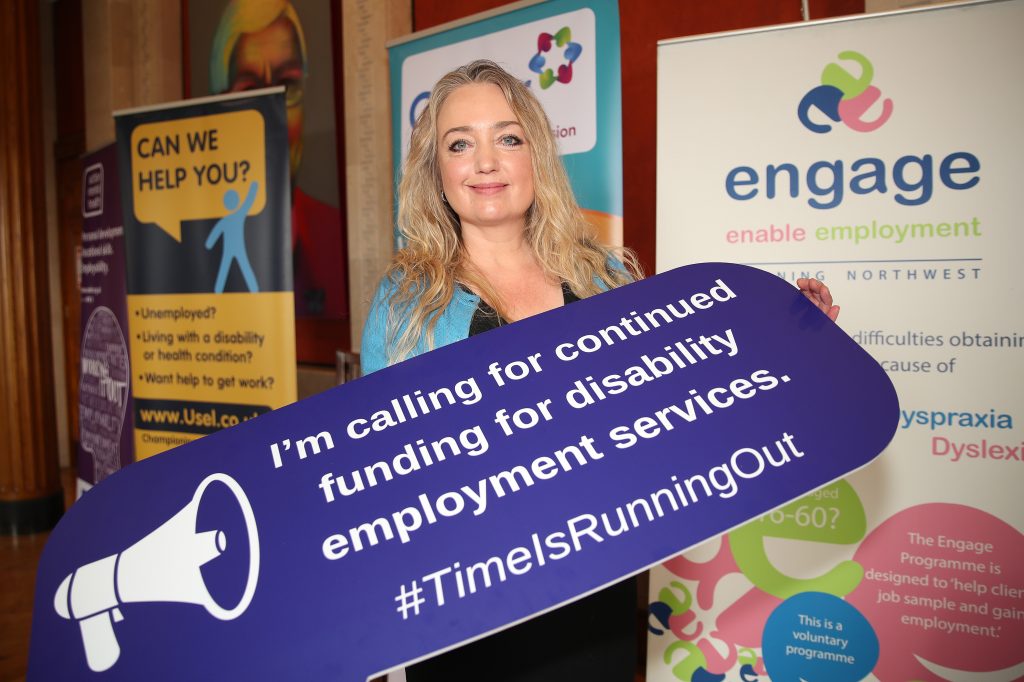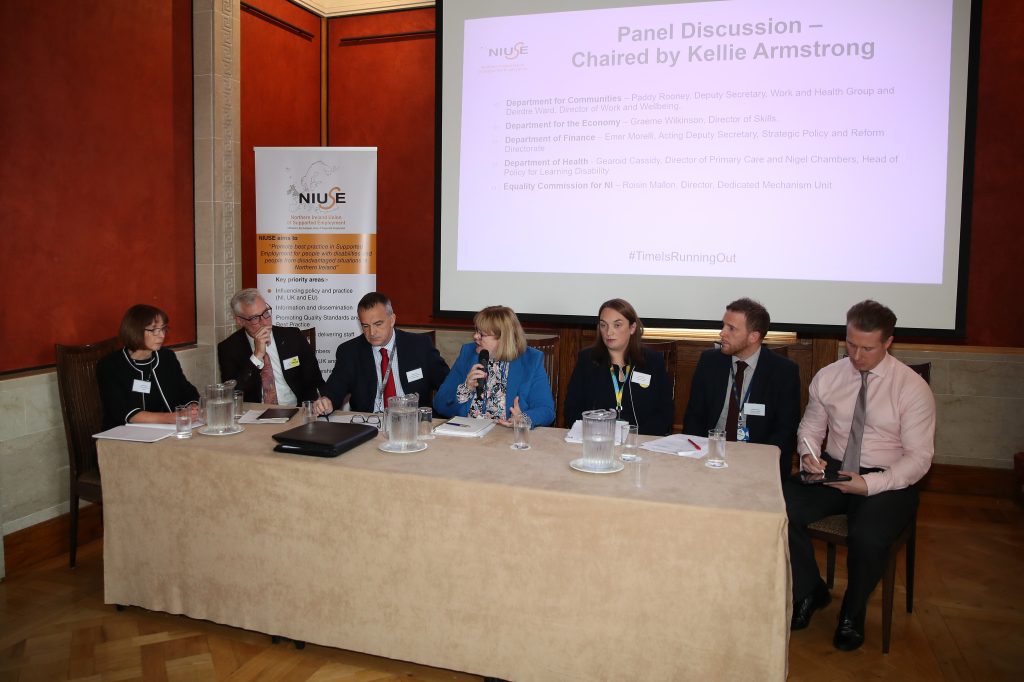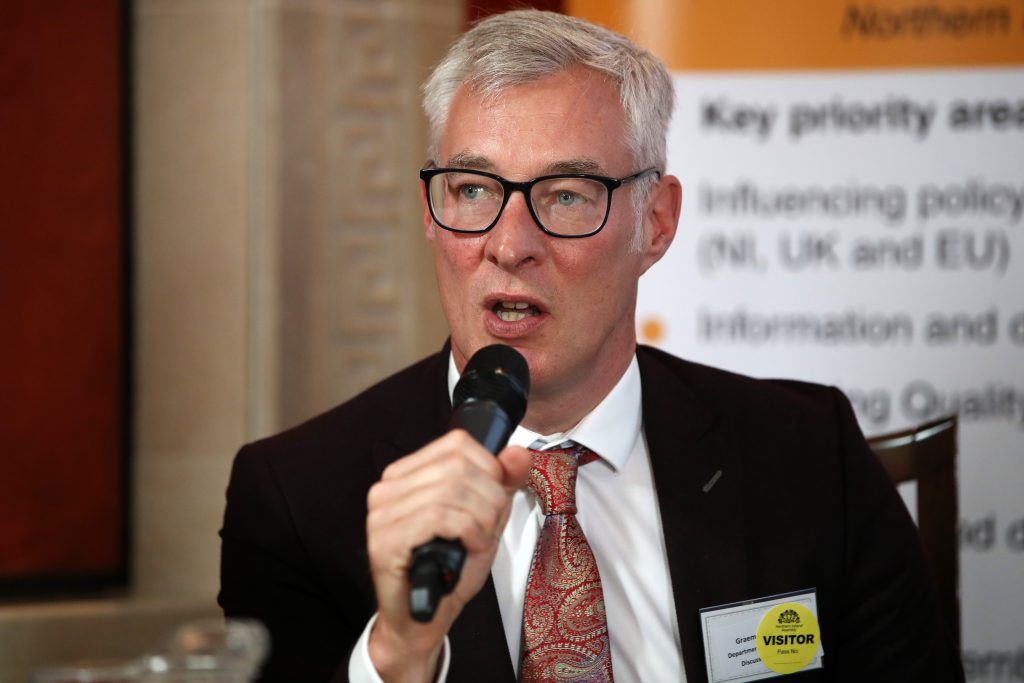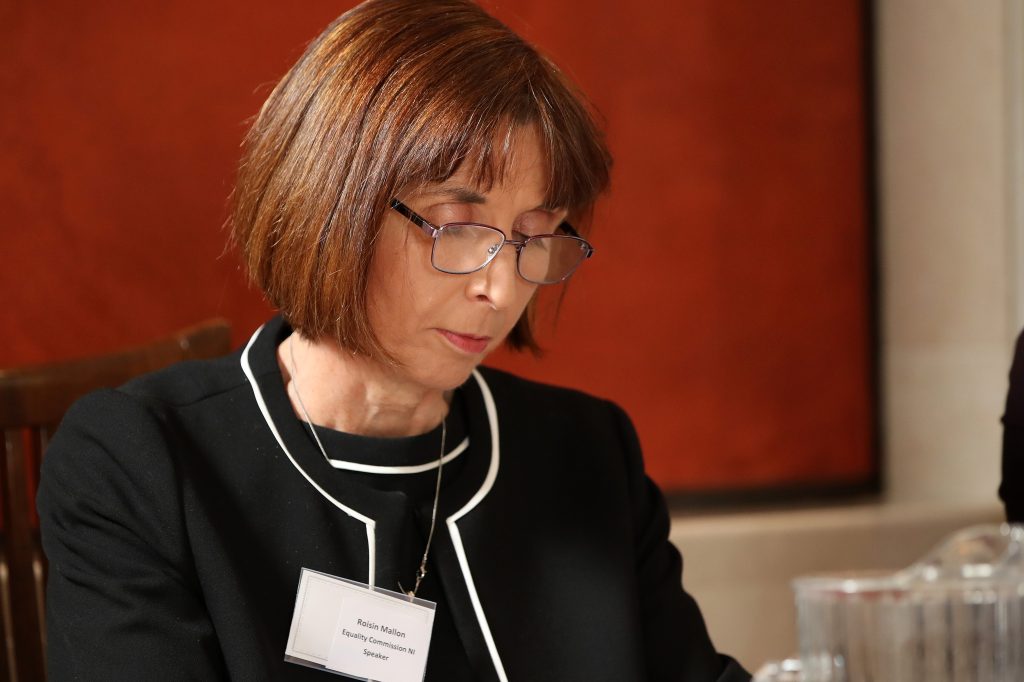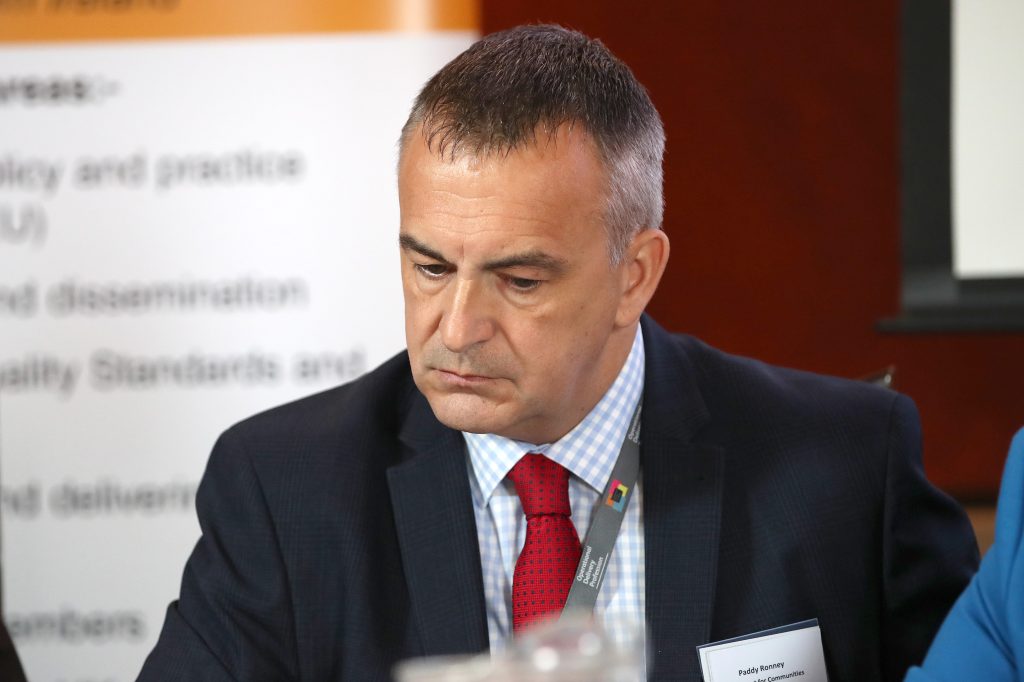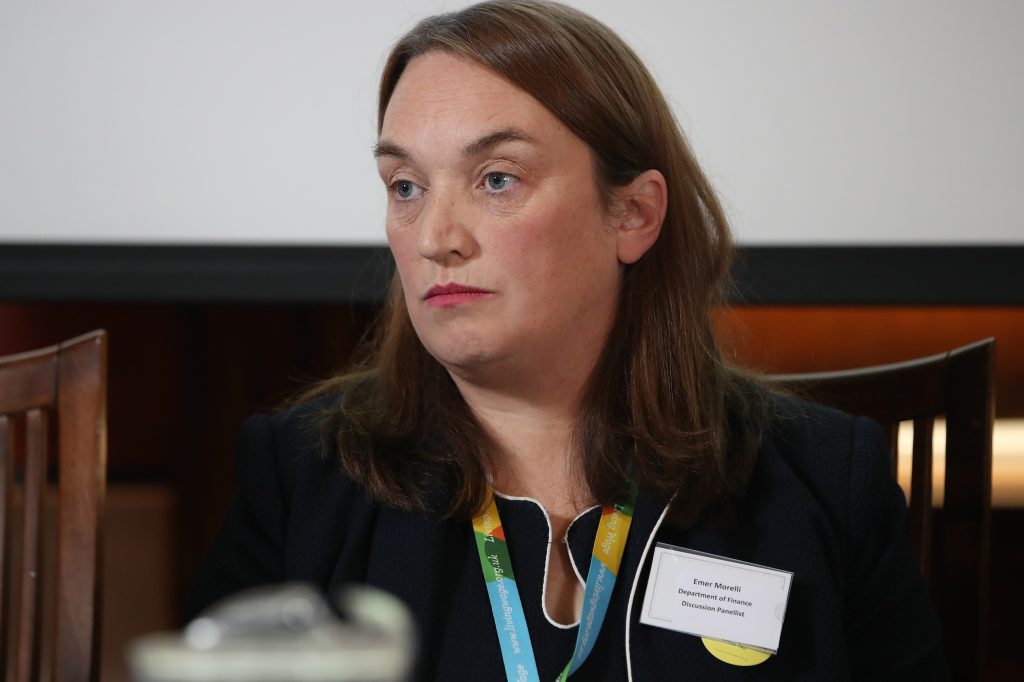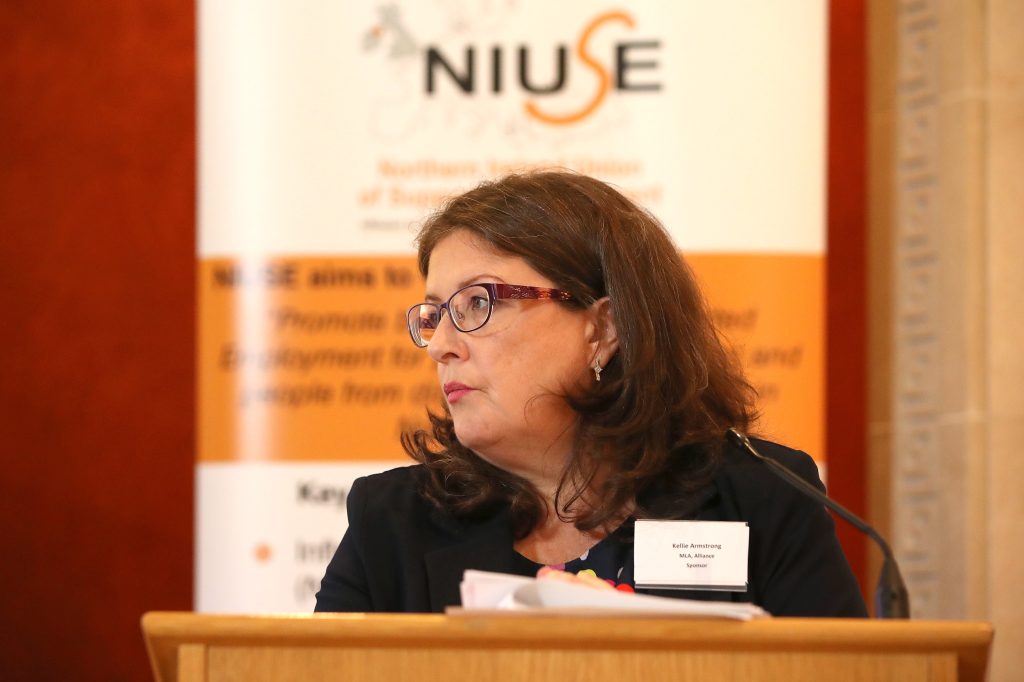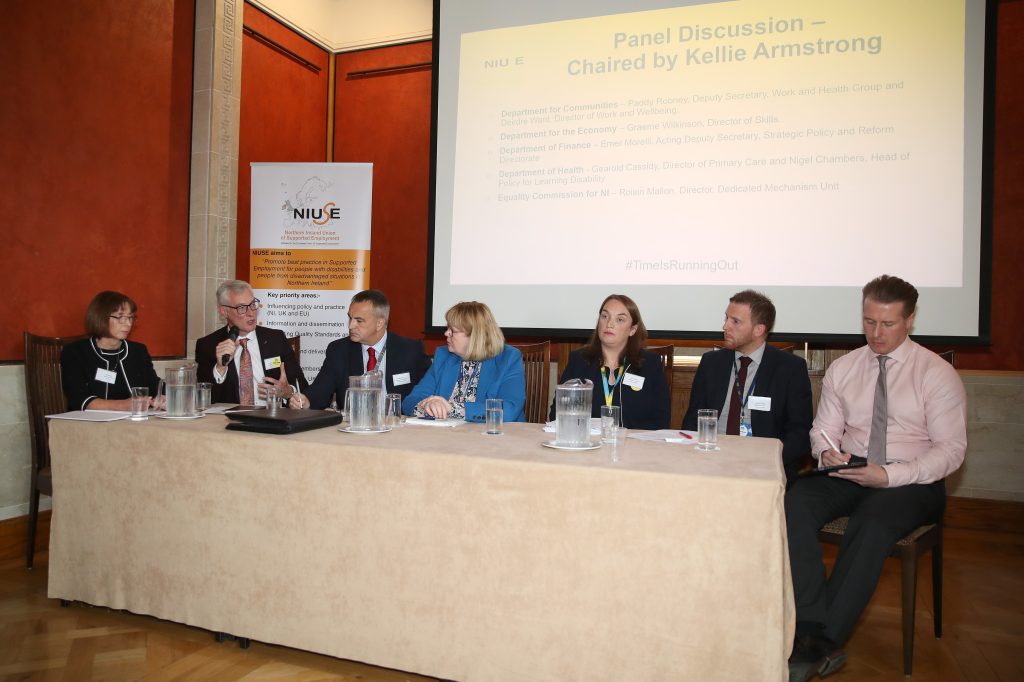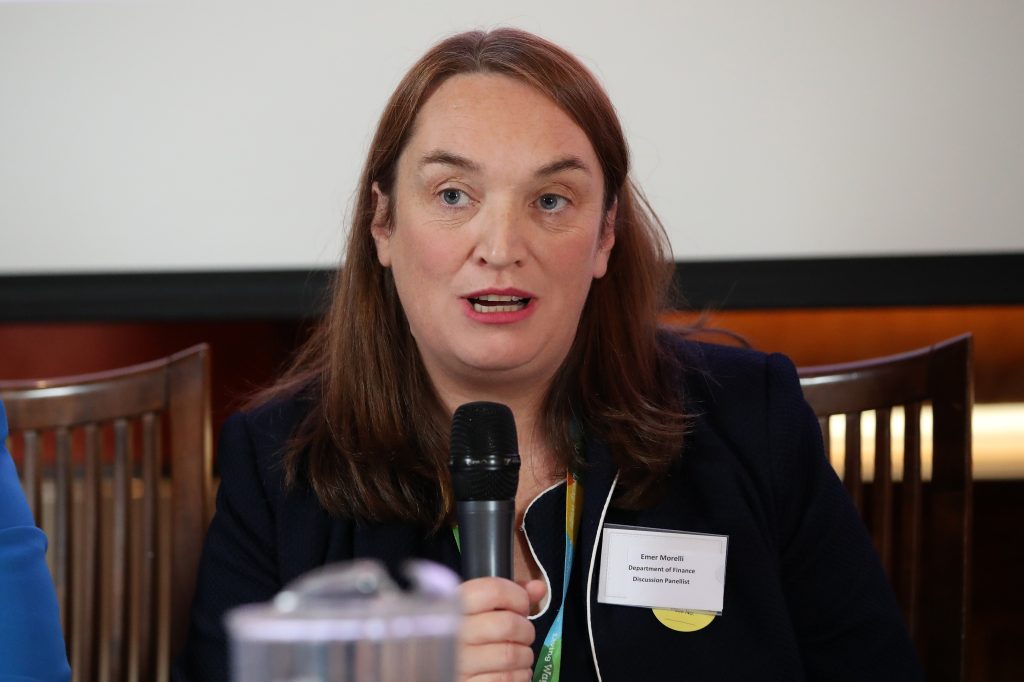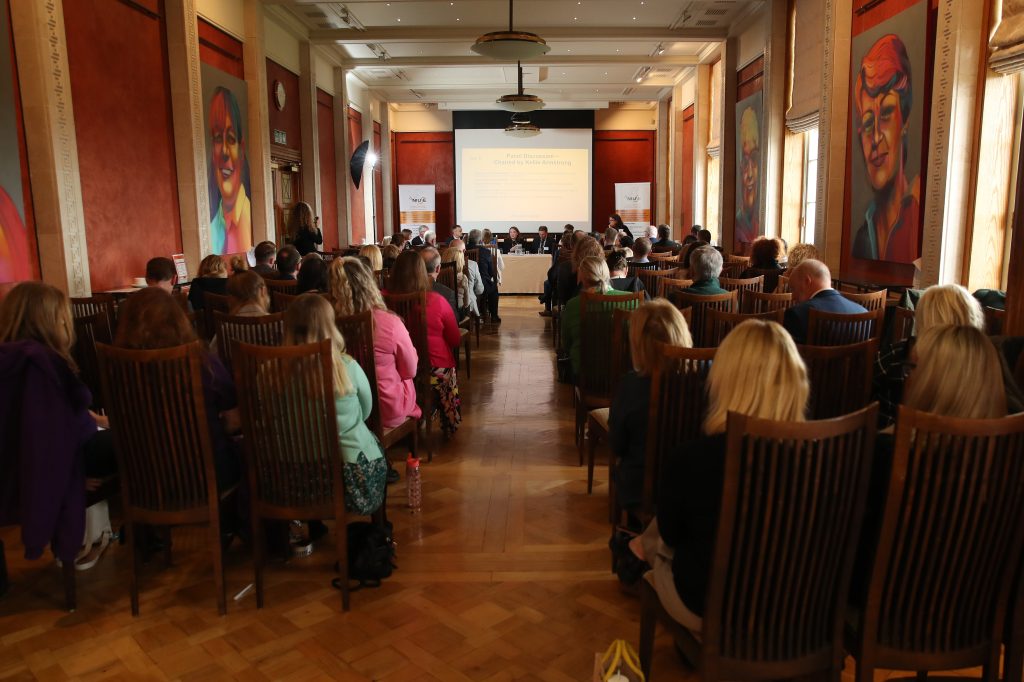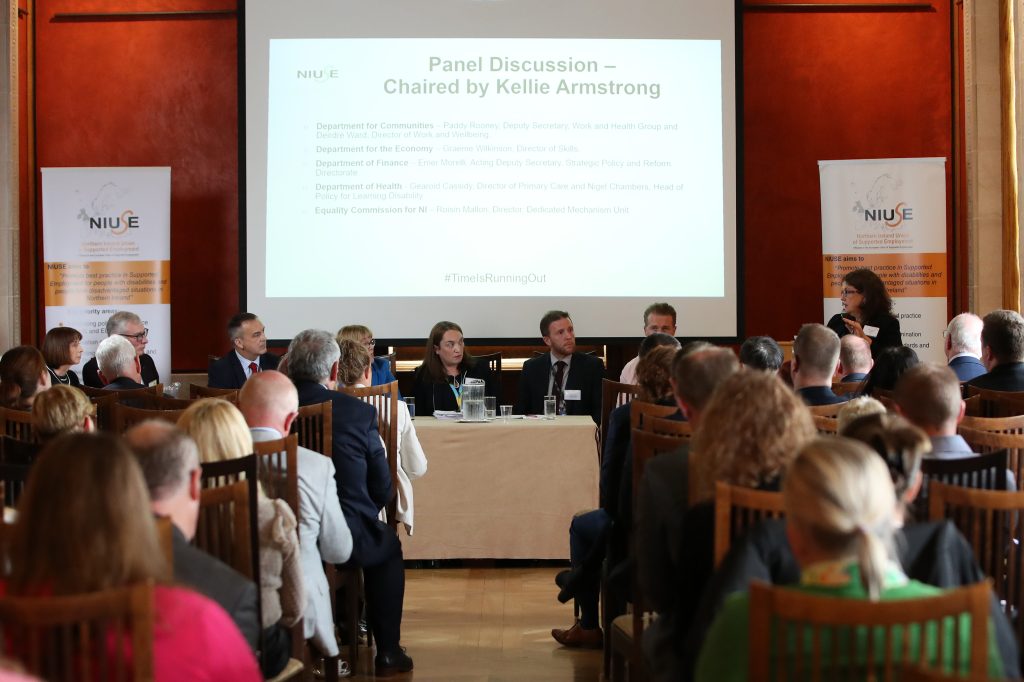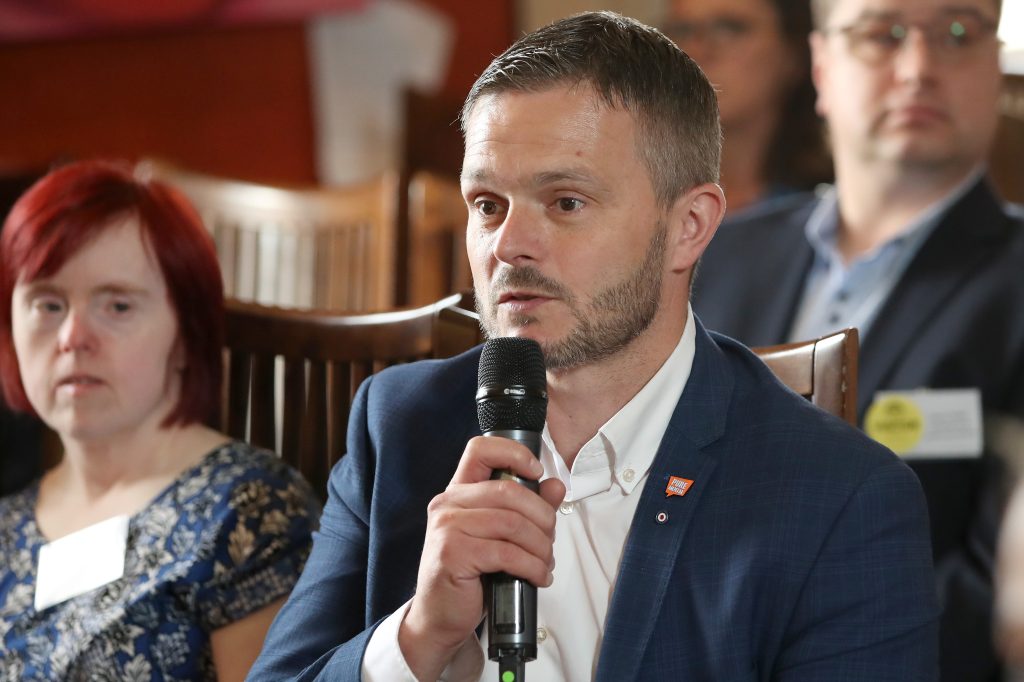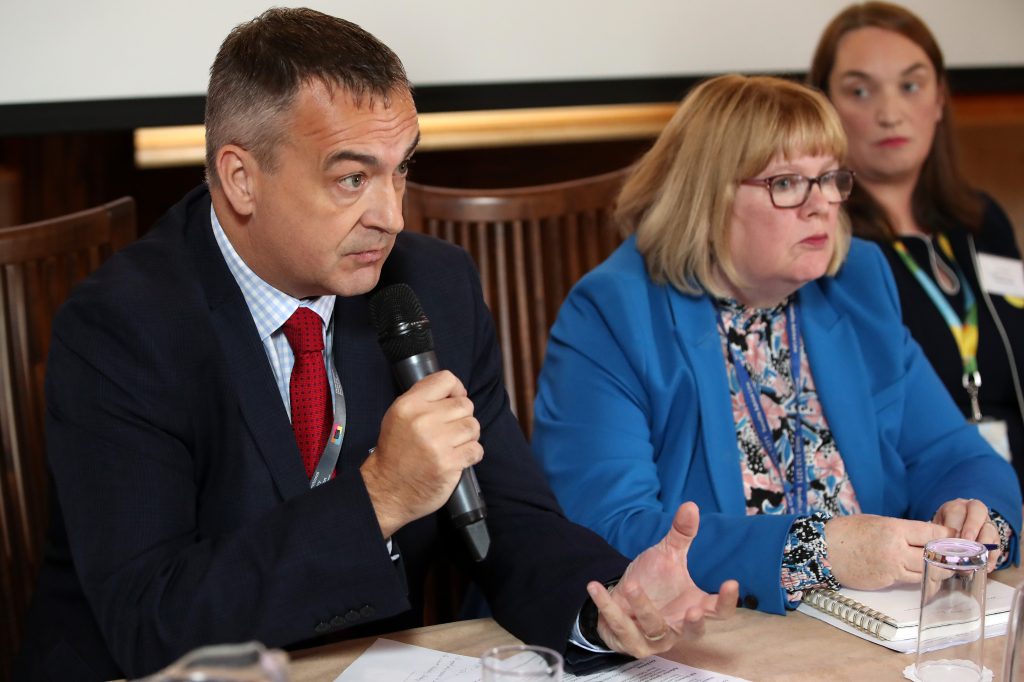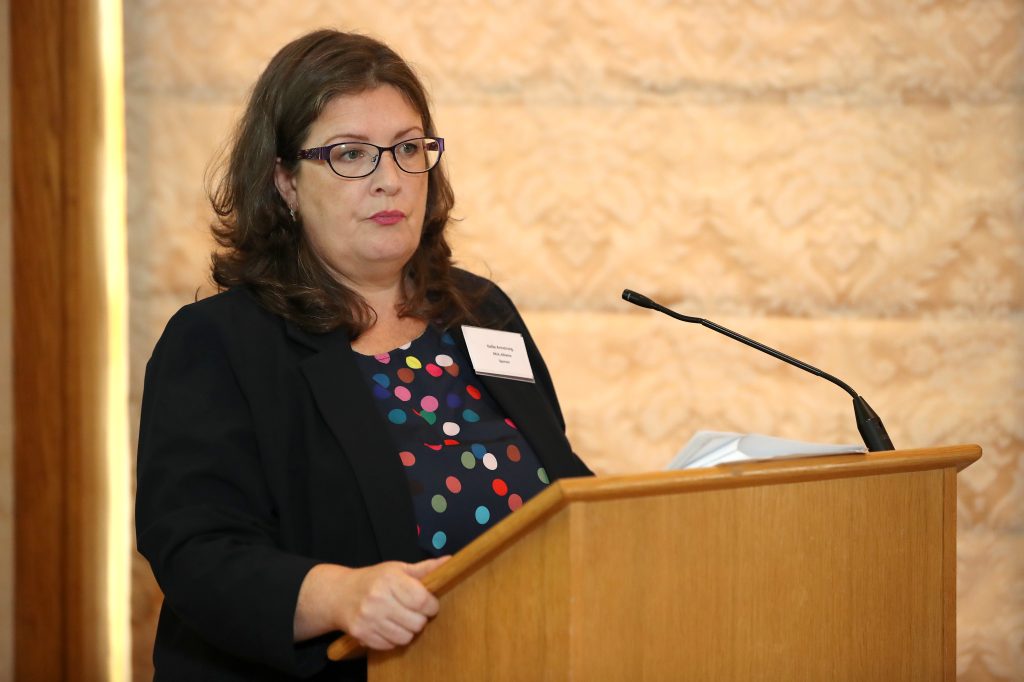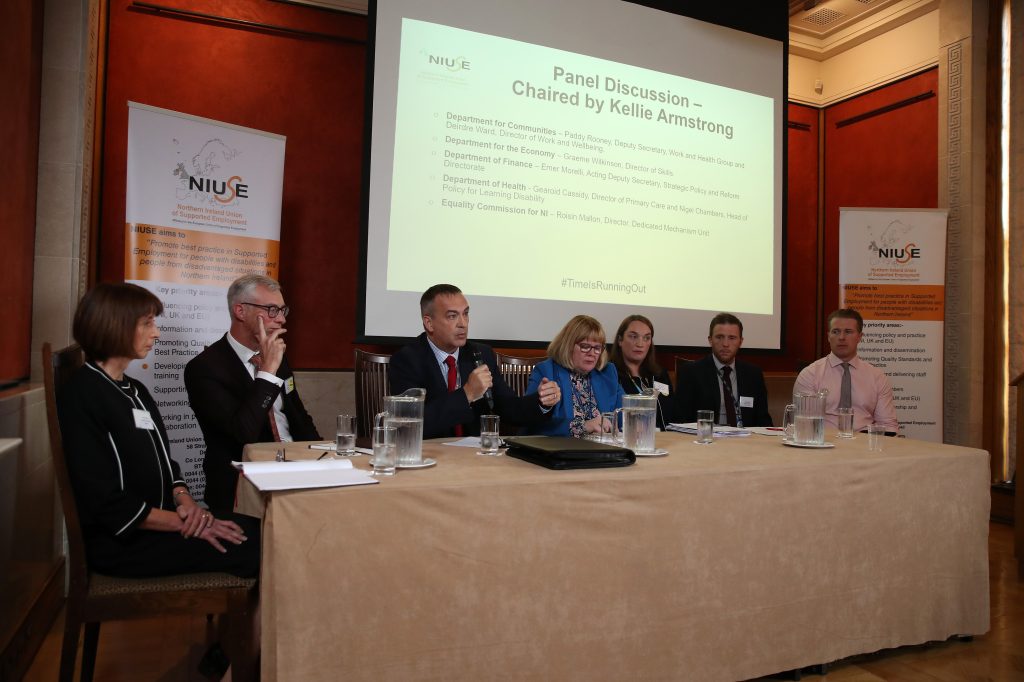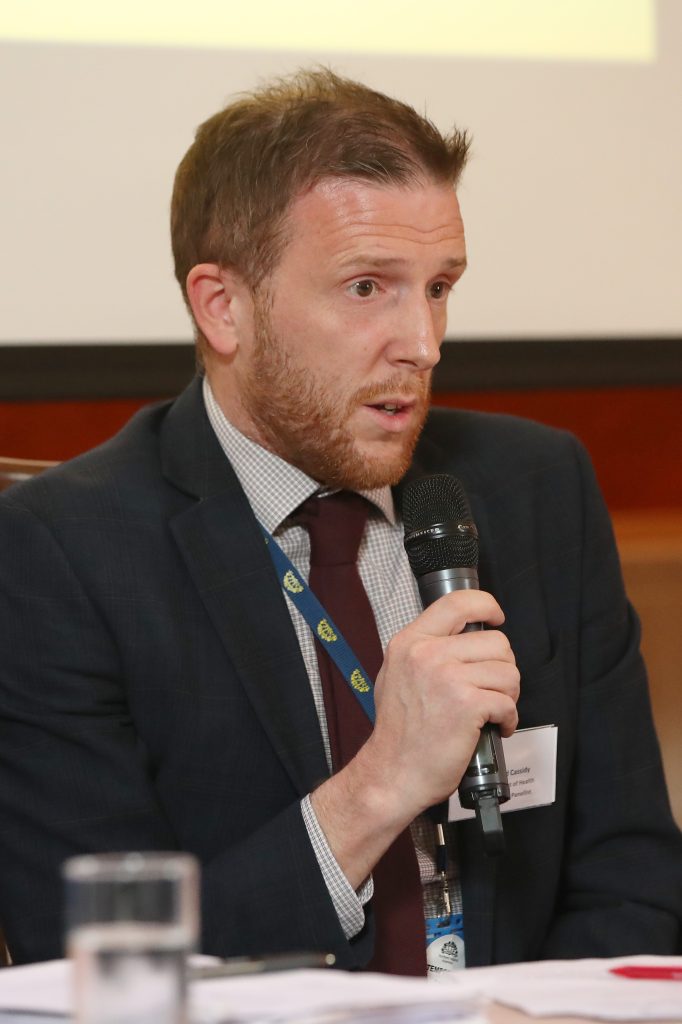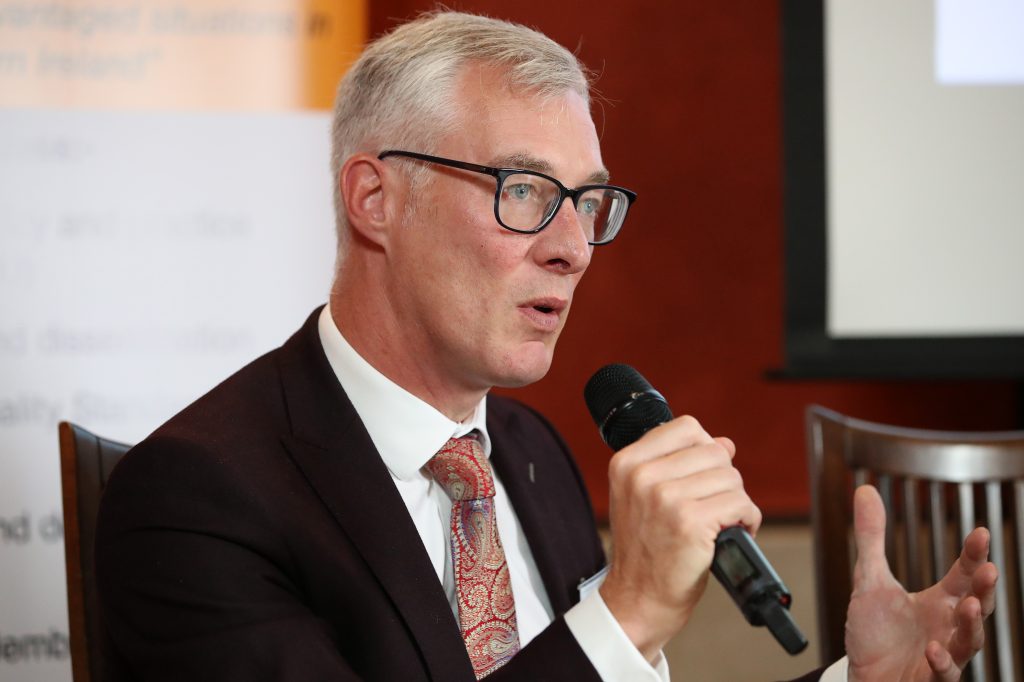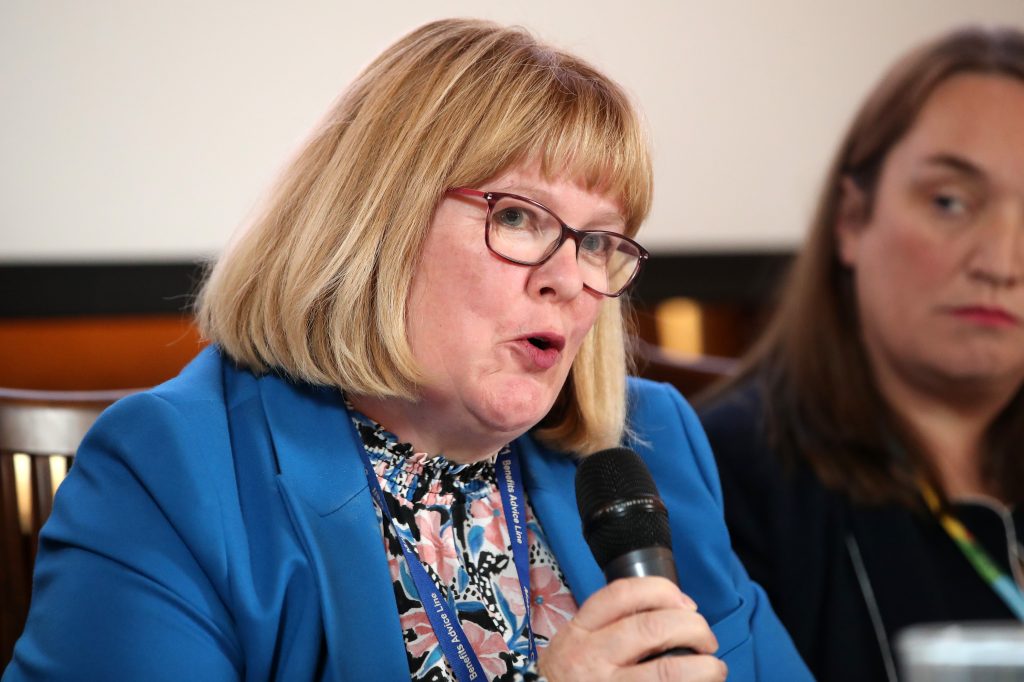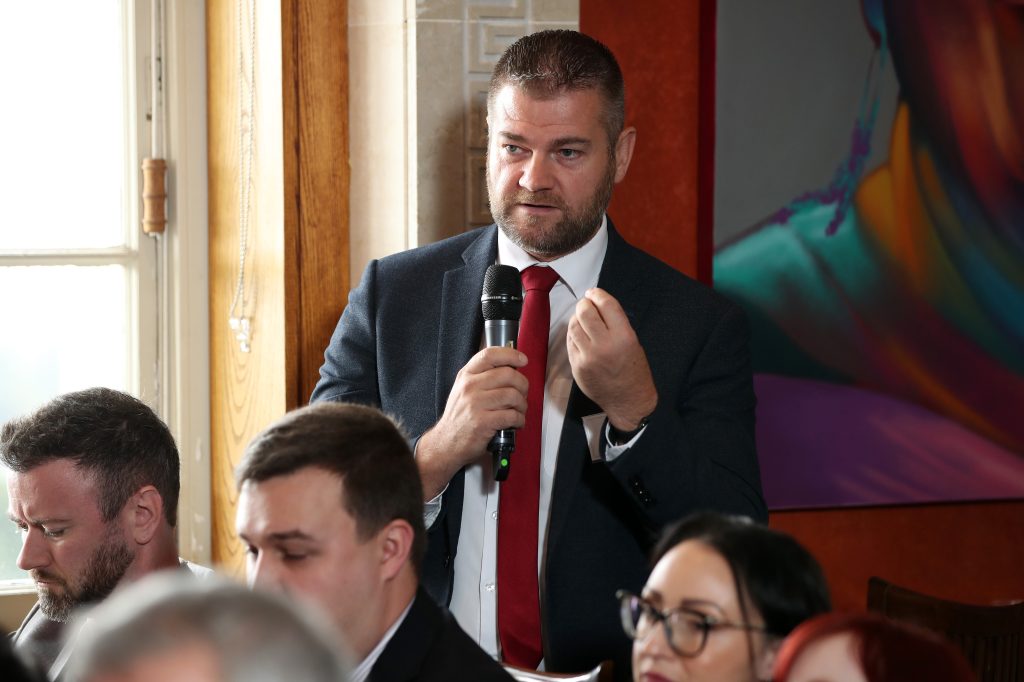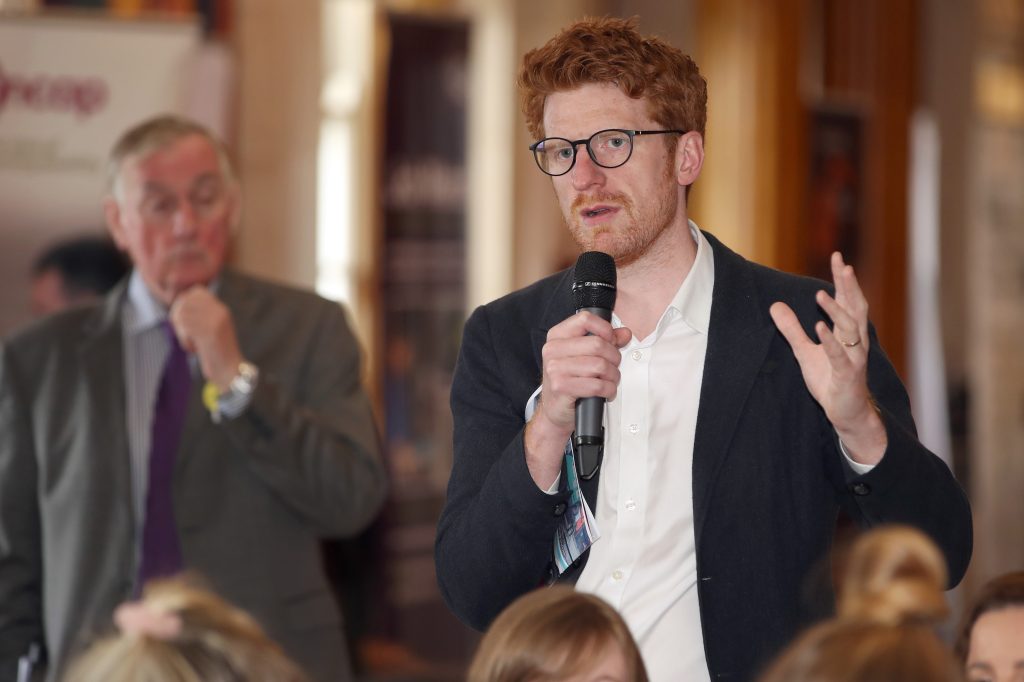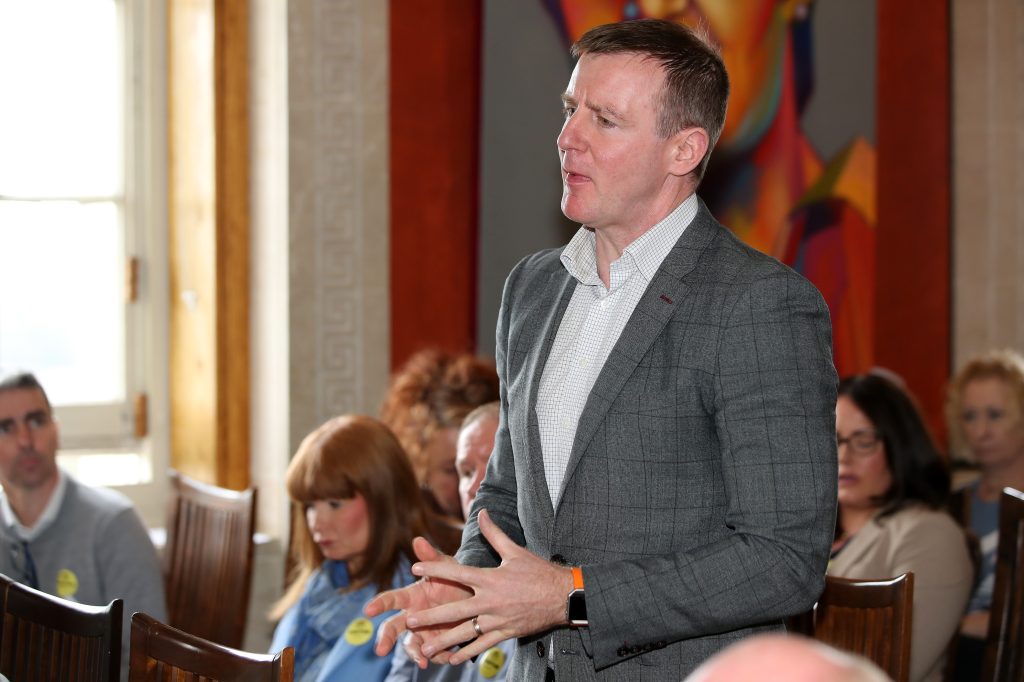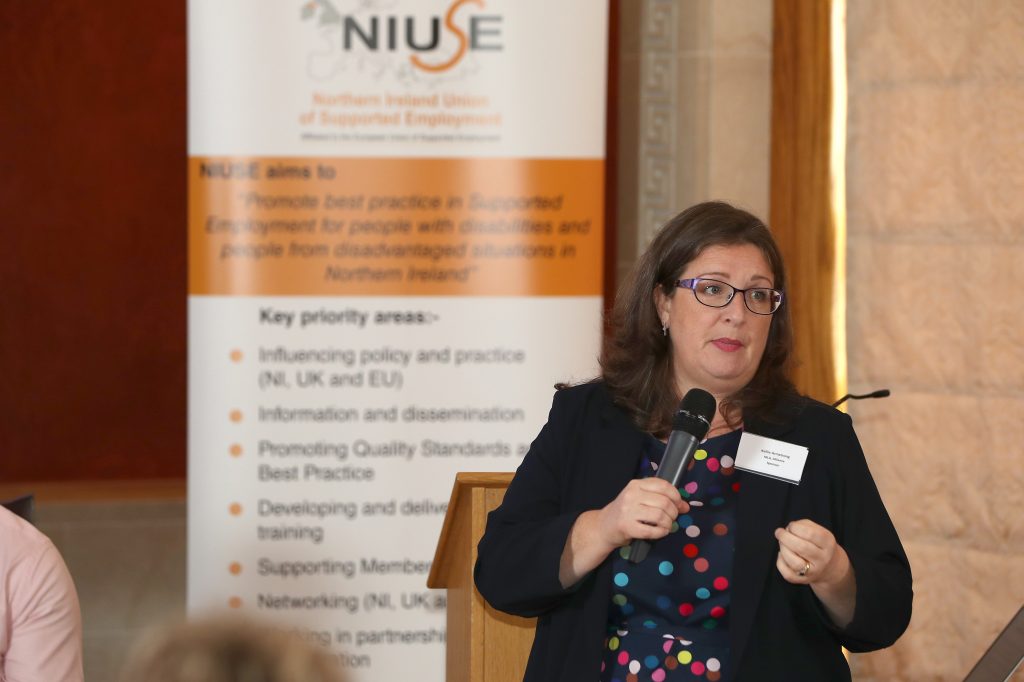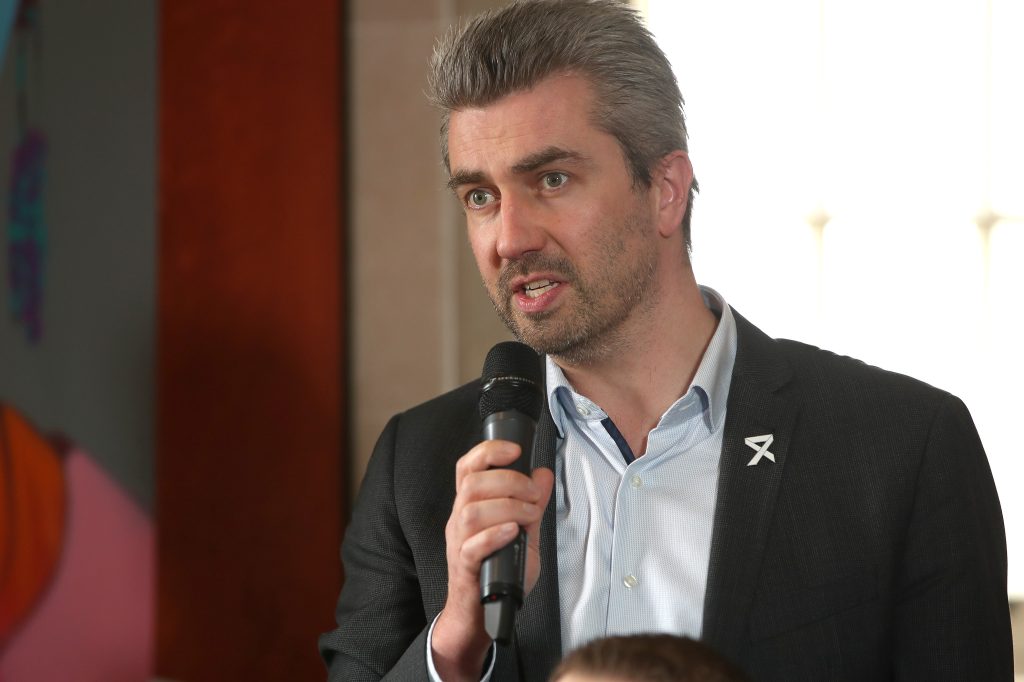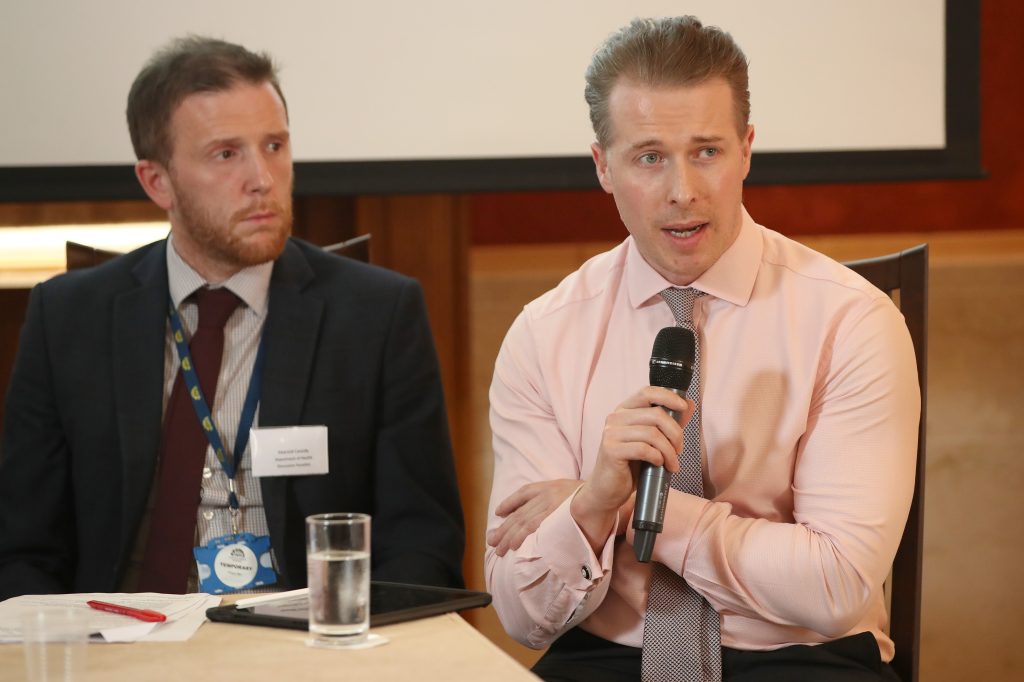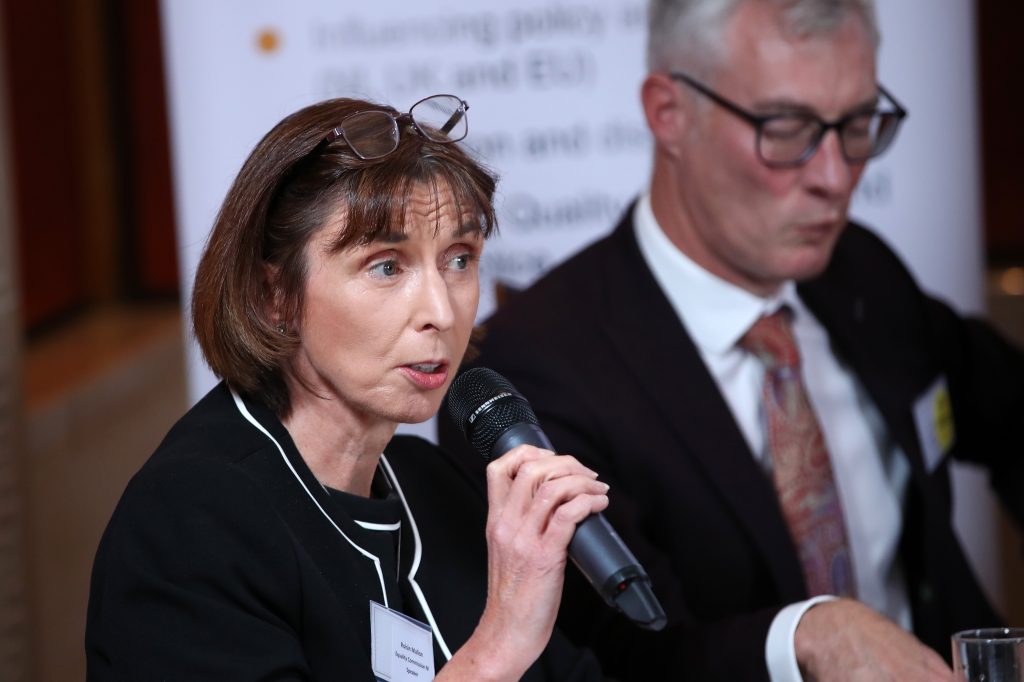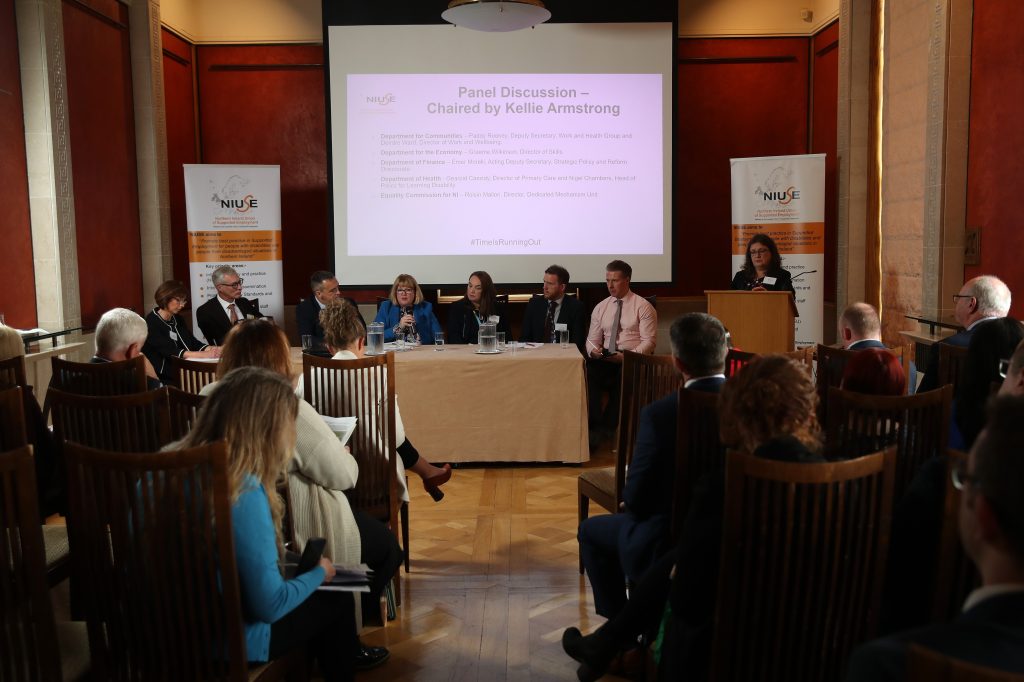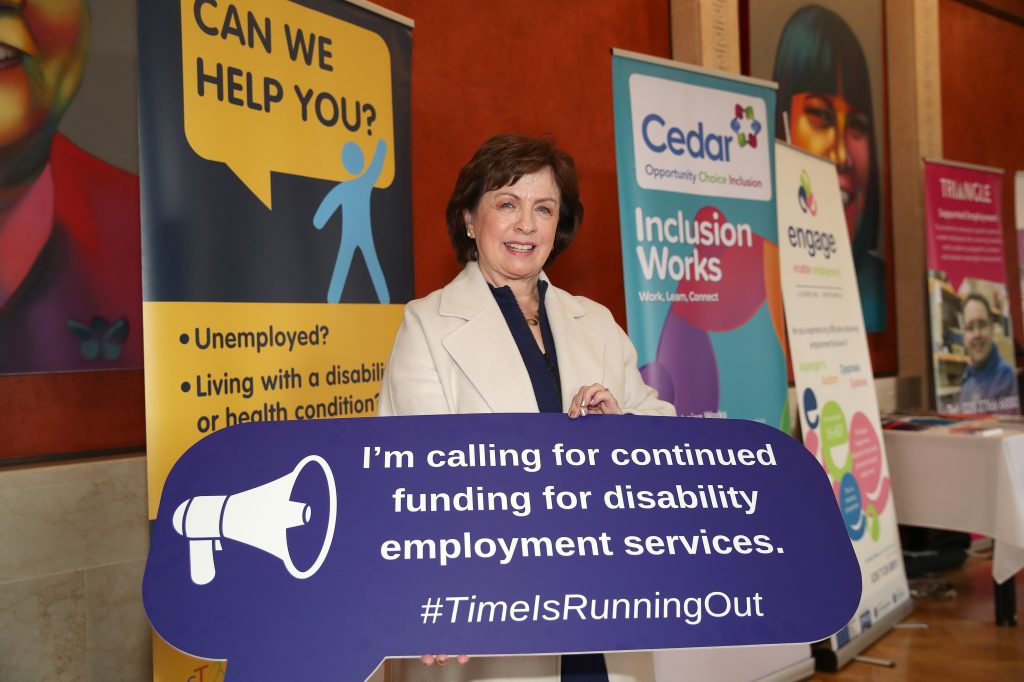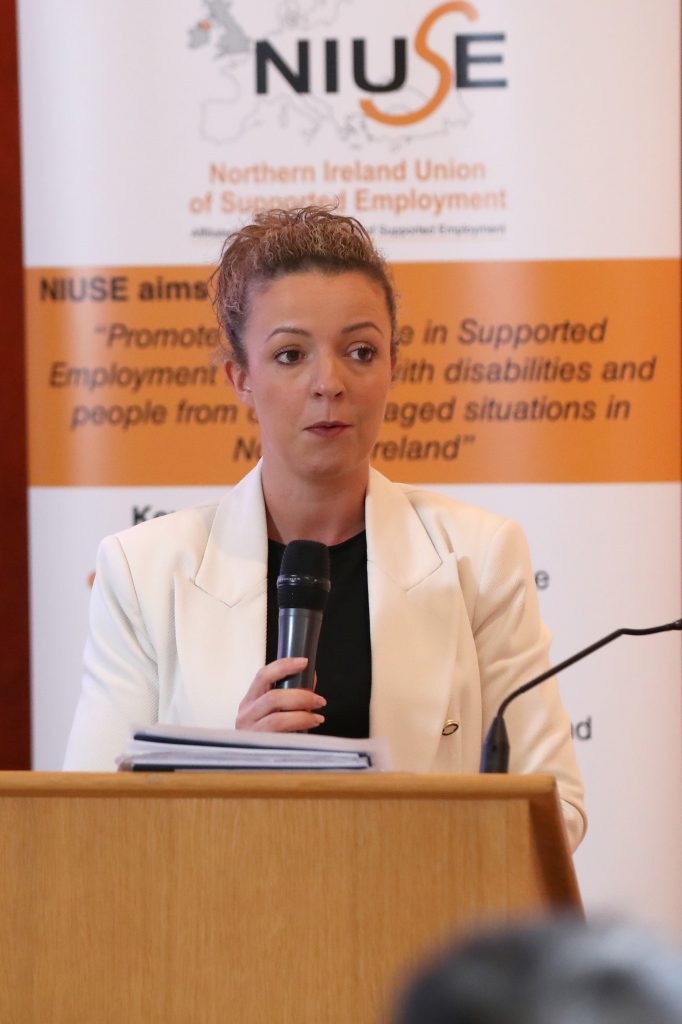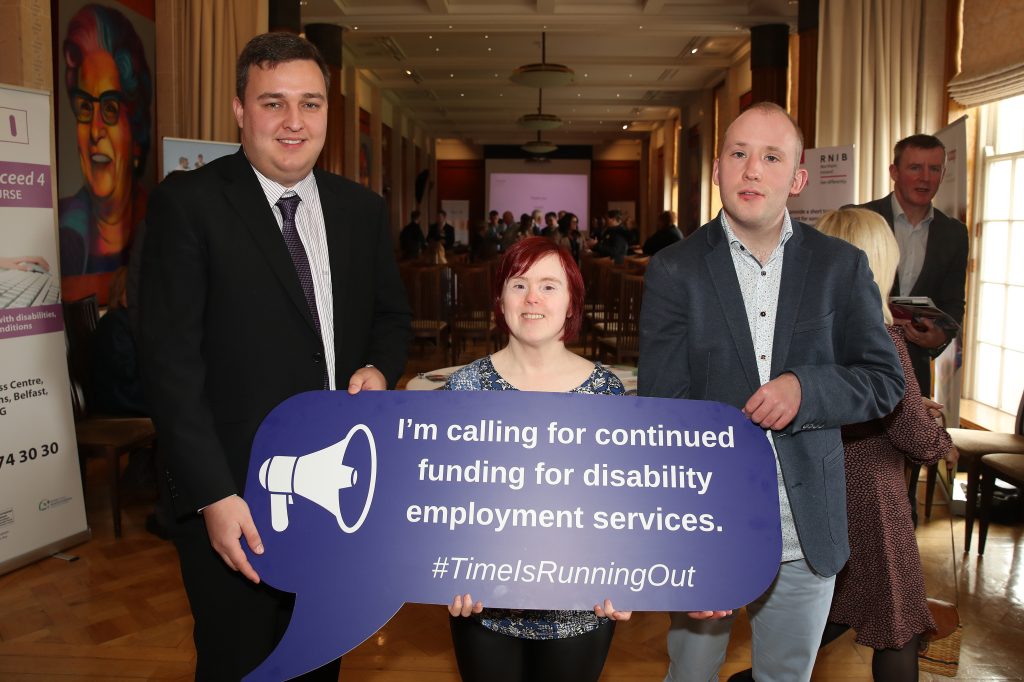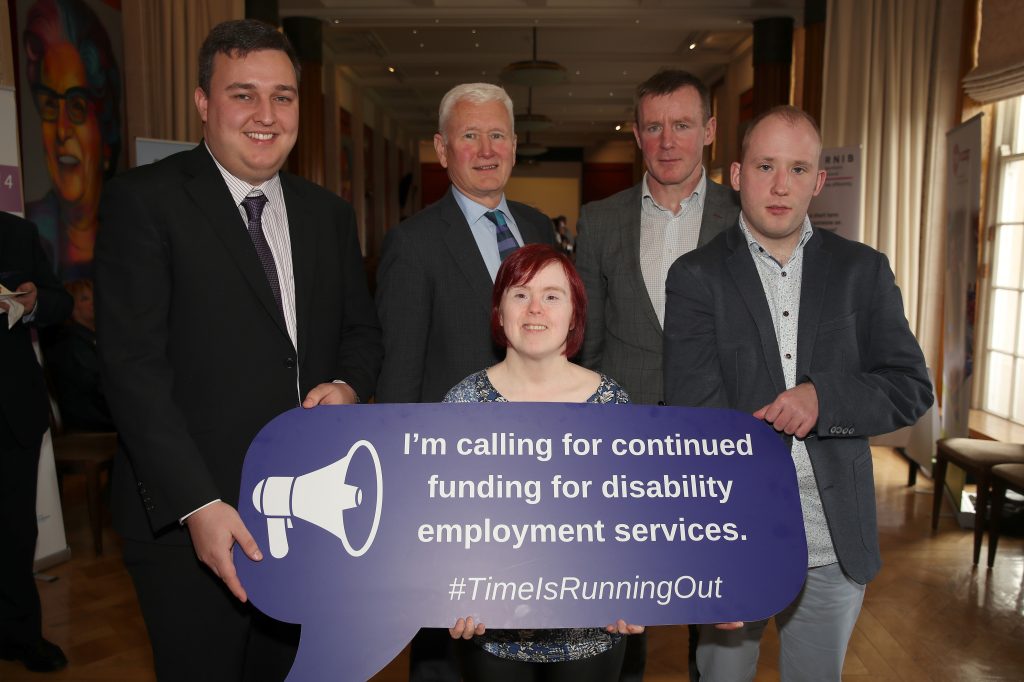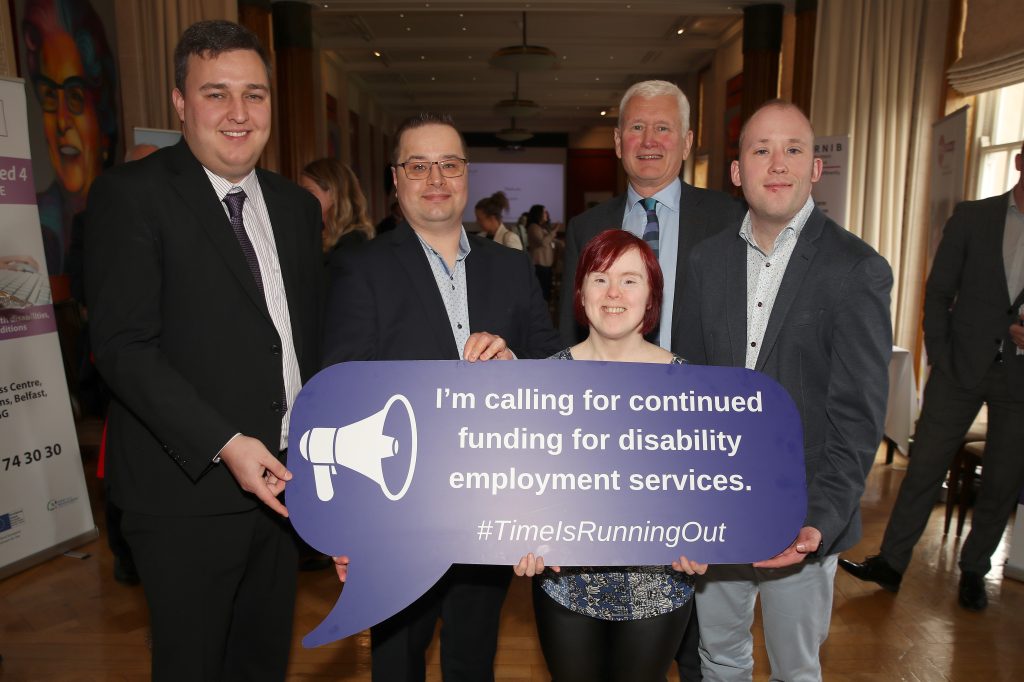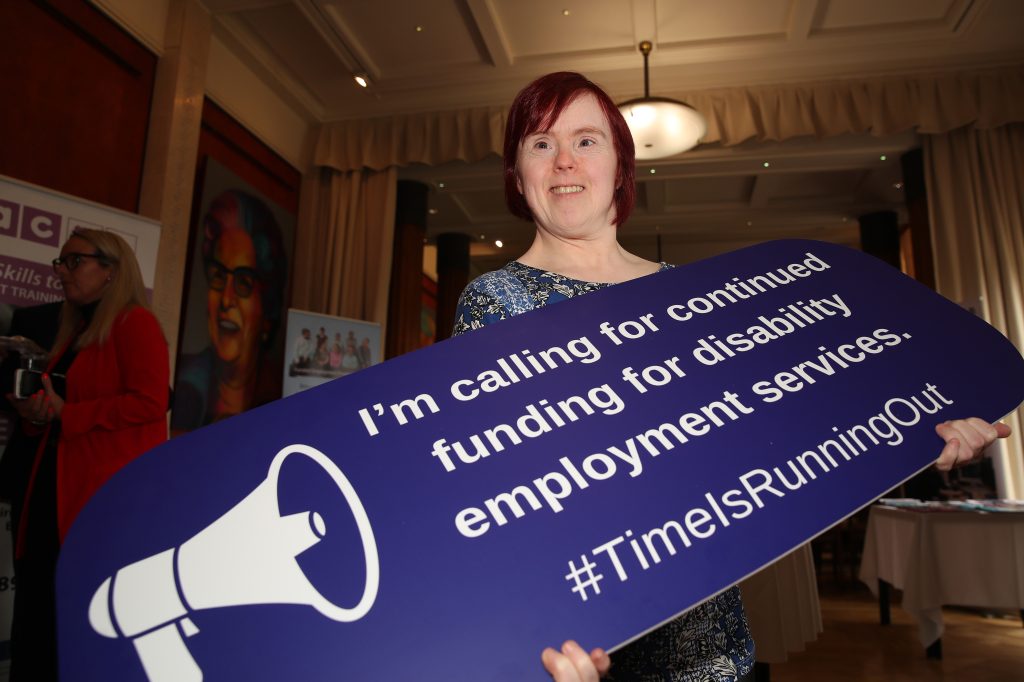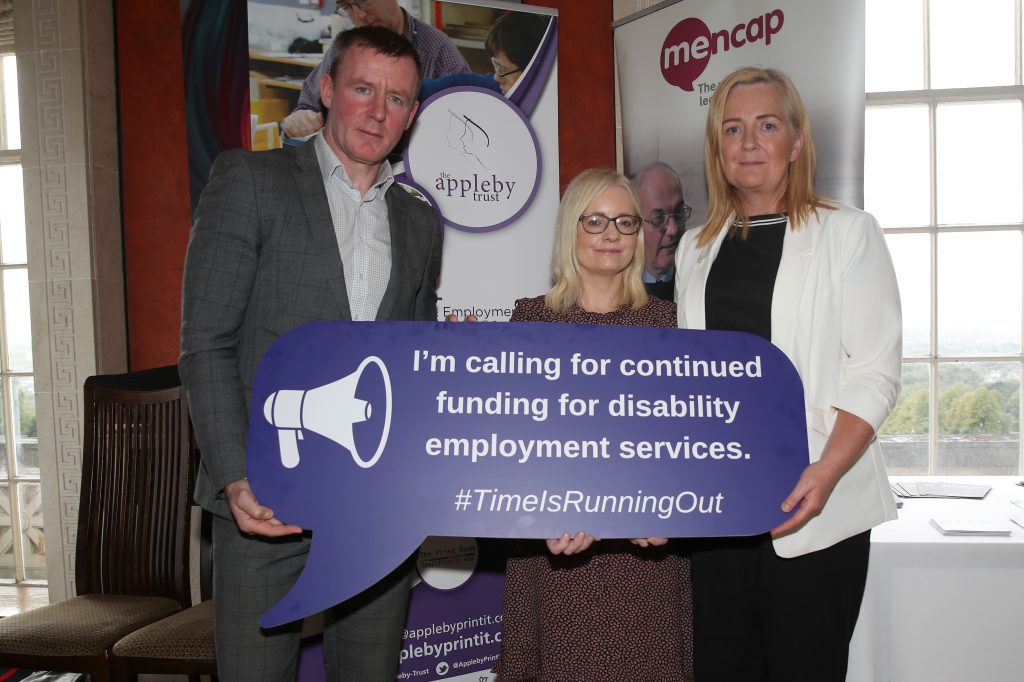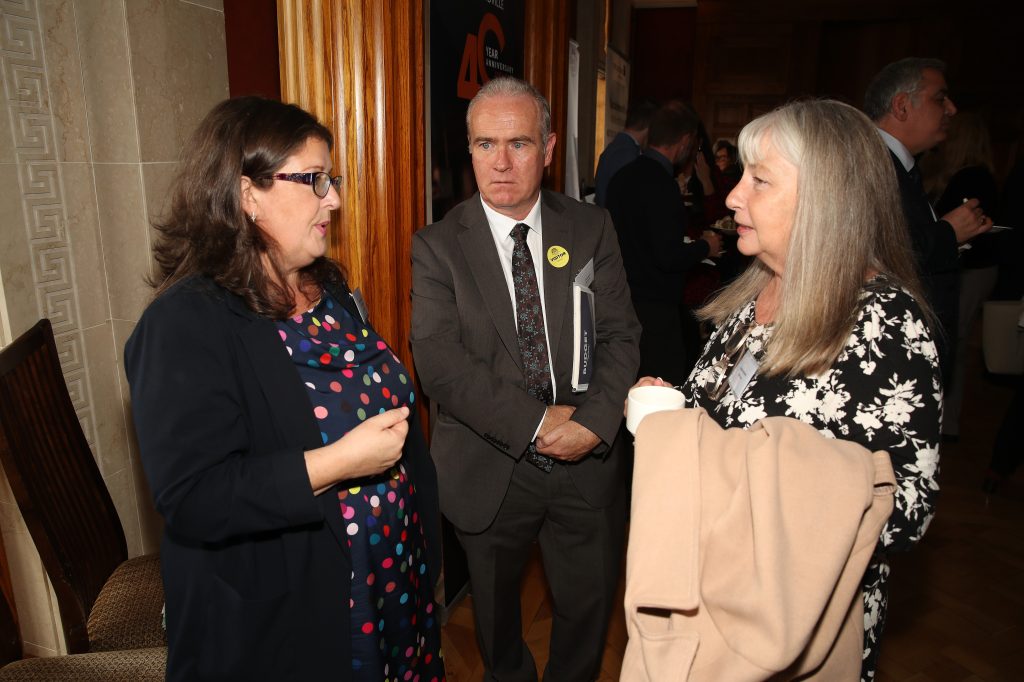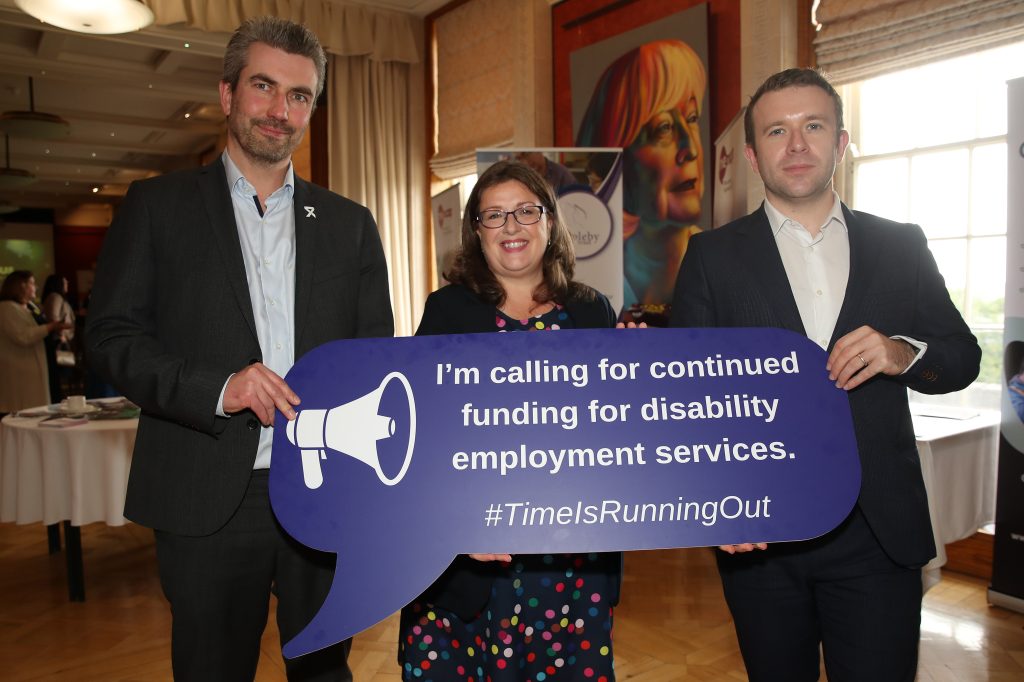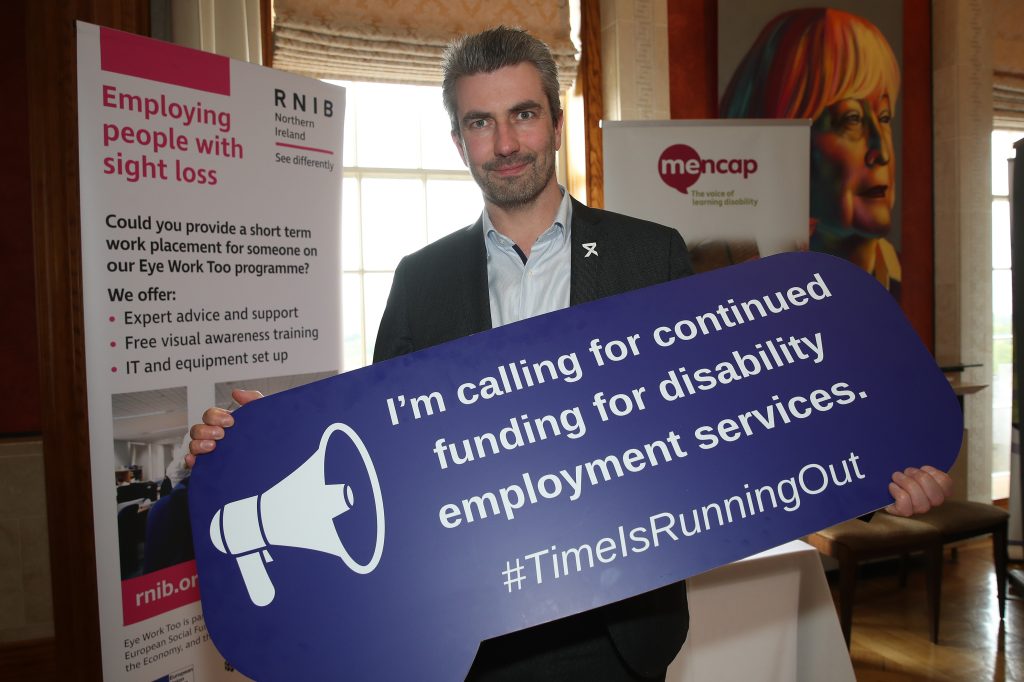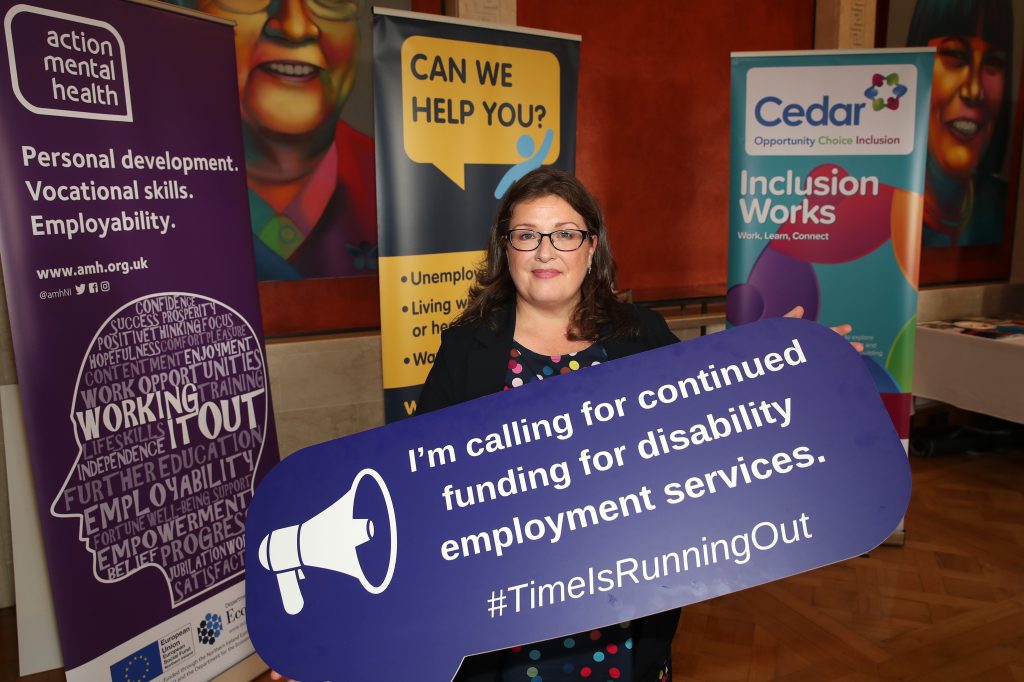Sector leaders urge for clarity on the future of Disability Employment Services in NI
The uncertain future of disability employment services in Northern Ireland, currently funded through the European Social Fund (ESF) has reached a critical cliff edge, sectors leaders, officials and elected representatives heard during an event in Stormont on Tuesday.
The event, led by the Northern Ireland Union for Supported Employment (NIUSE) heard first hand from service users who have accessed the range of support services currently under threat across the region. The event, sponsored by Kellie Armstrong MLA and Liz Kimmins MLA also heard from key departmental officials and service providers Mencap, Action Mental Health and Elaine Leonard, Chief Executive of Appleby Trust alongside the Equality Commission NI.
The European Social Fund (ESF) provides dedicated funding for projects aimed at improving the employability and employment levels of disabled people who often find it extremely difficult to access mainstream provision and as a result find themselves disadvantaged and further removed from the labour market. In doing so, it aims to help reduce inequalities between communities and regions and providers wider wellbeing and mental health benefits. Northern Ireland currently has the largest disability employment gap in the UK. The current funding provision is due to come to an end in March 2023, with no clear plan as to who or how this gap will be filled.
Norman Sterritt, Chair of NIUSE said,
“Time is running out and we have gathered a number of disability organisations, politicians, officials and other stakeholders together to find a solution to this urgent issue. Given the current challenges with the cost of living crisis, on top of the many health, social and economic inequalities that disabled people already experience, we need to ensure no one is left behind.”
The event also heard a powerful contribution from service user Conor, who received support through Mencap’s ESF Project. During the event, Conor said,
“Mencap helped me get a job in Primark and they are always on hand to provide guidance and support. I love being a part of the Primark team and the freedom and independence it gives me. When a customer leaves with a smile on their face, it makes my day.”
David Babington, CEO of Action Mental Health said,
“The current European Social Funding runs out at the end of March 2023 and there is no certainty as to how support will continue beyond that. As a cross departmental issue, it is vital that departments work together to identify a long-term sustainable alternative to ESF. It has become clear that the UK Shared Prosperity Fund will not sufficiently fill the gap that will be left for the 22 disability providers supporting some of the most vulnerable in our society.
“With no current Disability Strategy or Disability Employment Strategy in place, service providers are already working in an uncertain and difficult environment, made even more precarious by the lack of clarity around future funding for support for these vulnerable people. Over 21% of the working age population in NI has a disability, matching the average rate across the UK and with many of them have experienced challenging times during Covid-19 and now with the ongoing cost of living crisis, clarity is urgently required beyond March 2023”.
He finished; “We appreciate these are difficult times with all kinds of political, financial, cross departmental and governance hurdles but remember this will impact real people and it will be a shameful decision if in 2022 we let down those who are most in need”.
ESF has helped over 76,000 people since 2018 with over 11,000 participants moving into employment and another 11,000 into further education and training. Administered by DfE, the ESF budget is currently £177m for 69 projects of which £60.7m is for 22 disability projects which form a key pillar to the NI Executive’s response to barriers to employment for employees with a disability and mental health recovery services.
The event also heard from the Equality Commission NI’s Roisin Mallon who discussed the potential equality implications across Section 75 groups and the risk to not continuing support for these individuals.
All the pictures from the event can be found below.
